From 9 Activists to a Worldwide LGBTI Movement
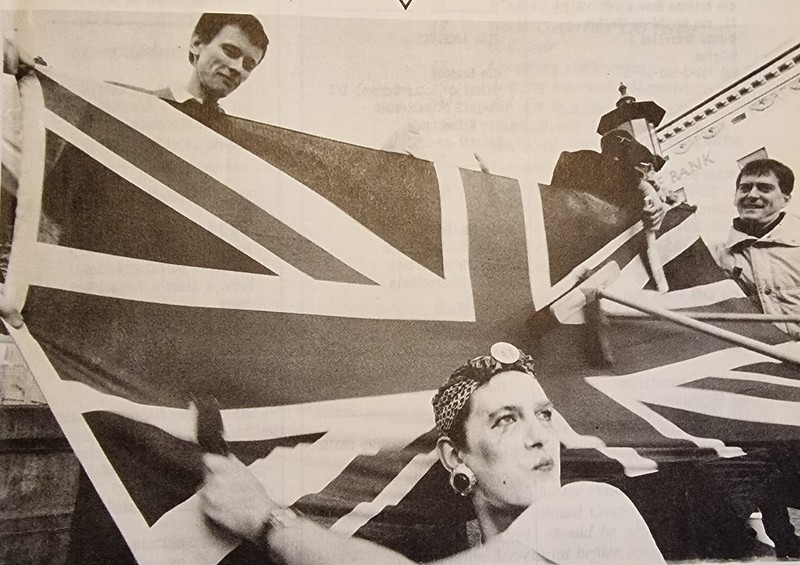
A newly released archive of over 2,000 photographs charts a journey that grew from a small meeting of activists in the UK almost 50 years ago to an international LGBTI movement still striding forward for human rights and equality today.
In 1978, a pivotal moment in LGBTI history unfolded in the United Kingdom, when activists from nine countries gathered in the city of Coventry to establish the International Gay Association (IGA), launching a coordinated global effort for LGBTI rights. Acting on the need for a dedicated space for lesbian activism, the International Lesbian Information Service (ILIS) was founded in 1980. Over time, IGA evolved to become the International Lesbian, Gay, Bisexual, Trans and Intersex Association (ILGA), integrating broader identities into its advocacy. In 1996, ILGA-Europe was established as its regional branch, responding to the distinct political and legal landscapes of the European movement.
The ILGA & ILIS History Collection, meticulously curated by long-time activist Nigel Warner, offers a profound insight into these formative years of the LGBTI movement. Nigel’s dedication to documenting and preserving this history stems from his deep ties to ILGA, where he served in various roles, including overseeing its finances from 1987 to 1994. He also served in ILGA-Europe, as board member and treasurer from 2000 to 2005, and as our representative at the Council of Europe from 1998 to 2018.
Comprising over 2,000 photographs contributed by 80 activists, the collection documents significant events and themes from 1978 through the 1990s. It not only shows the public demonstrations and conferences but also provides contextual information, including contemporary documentation and personal accounts, painting a comprehensive picture of the early international LGBTI movement.
Today, as we witness a resurgence of right-wing ideologies and policies threatening LGBTI rights on an international scale, this collection serves as a poignant reminder of our community’s resilience. The challenges we face are formidable, with countries electing openly LGBTI-phobic leaders, and enacting laws that roll back hard-won rights. Yet, the history captured in these photographs reminds us that the movement has weathered significant adversities before.
The ILGA & ILIS History Collection stands as a testament to the power of solidarity, courage, and unwavering commitment. And if we remember our past, we can inform our present and inspire our future. As we navigate the current challenges, let this collection be a source of strength and a reminder that, together, we can overcome adversity and continue the march toward equality.
Explore the ILGA & ILIS History Collection and join us in honouring the legacy of those who paved the way for the rights we uphold today.
A Call for Urgent Action Against Rising Anti-LGBTI Hate
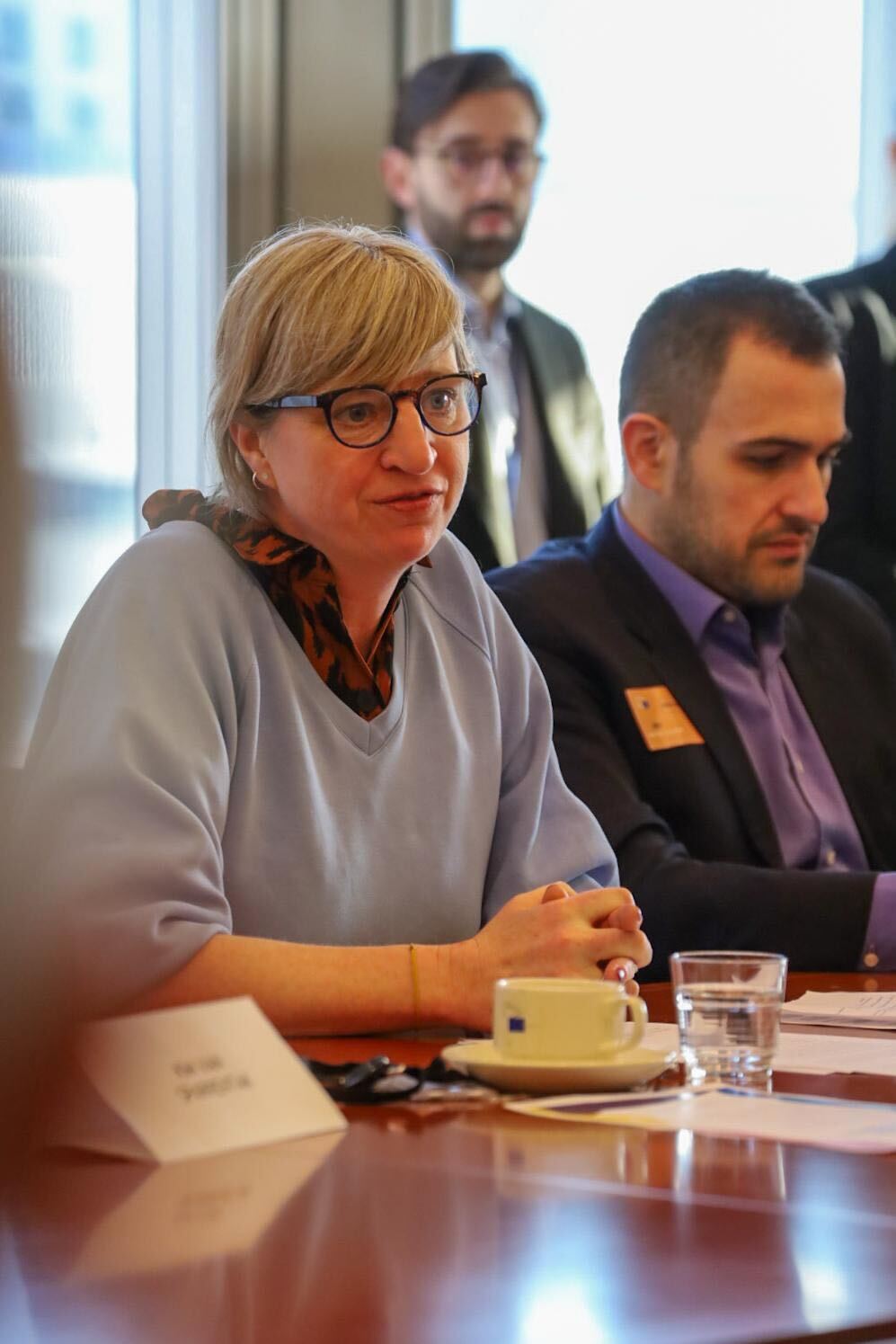
At the launch of our 2025 Annual Review, ILGA-Europe’s Advocacy Director, Katrin Hugendubel delivered a stark warning about the growing wave of anti-LGBTI hate, misinformation, and legislative attacks across the region. As governments weaponise discrimination to undermine democracy, she called for urgent political action to protect fundamental rights and freedoms. In today’s blog we share the full text of her speech.
Our Annual Review of the Human Rights Situation of LGBTI People in Europe and Central Asia, released this week, strives to provide a clear and comprehensive overview of the realities on the ground. The findings are based on individual cases, notable events, and legislative, political, and social developments, as well as data gathered from our own work and insights from LGBTI activists across the 54 countries covered in the report.
In recent years, LGBTI activists and organisations across Europe and Central Asia have repeatedly highlighted the worrying rise and normalisation of hate and violence in our region, including numerous attacks on LGBTI rights that systematically undermine fundamental freedoms.
The 2025 Annual Review once again evidences a clear increase in hate and violence. Furthermore, it illustrates how ongoing LGBTI-phobic hate and misinformation campaigns have laid the groundwork for legislation such as anti-propaganda and foreign agent laws. These laws, which ostensibly target LGBTI rights, actually extend much further—introducing censorship, stigmatisation, and persecution of human rights defenders and opposition voices; anti-democratic interference in elections through disinformation campaigns; and, ultimately, laws that erode fundamental freedoms and the principles of democracy. LGBTI rights are being used as an entry point for broader repressive measures.
LGBTI-phobic hate speech, sexism, and misogyny are increasingly normalised, often fuelled by public figures, including political and religious leaders and state institutions. Politicians in several countries, including Austria, Belgium, Bosnia & Herzegovina, Czechia, Moldova, and Romania, have weaponised discriminatory narratives against LGBTI people during election periods.
To cite just a few examples: in Austria, the far-right FPÖ spoke of “transgender brainwashing” and sought to cut taxpayer funding for what it termed “queer experiments”. In Belgium, Vlaams Belang repeatedly invoked the notion of “gender madness”. The President of Republika Srpska in Bosnia & Herzegovina was fined for hate speech during the election campaign.
The Georgian Elections Observatory (GEO), which focuses on fact-checking pre-election narratives, analysed statements made by senior members of the ruling Georgian Dream party, revealing that ‘LGBT propaganda’ was framed as a Western imposition and linked to a perceived threat to national survival. A similar misinformation campaign in Moldova suggested the country would be overrun by the Western LGBTI agenda ahead of the October elections. In Romania, Călin Georgescu’s electoral campaign during the first presidential election round intensified hate speech against the LGBTI community, even advocating for the re-criminalisation of homosexuality in the Penal Code.
Hate crimes and violent incidents have been reported in the vast majority of countries covered in this report. In Albania, these include stoning attacks against lesbian activists and physical assaults on trans women, with no accountability measures taken. A migrant trans woman was murdered in a hotel room in Copenhagen. Just one day after the Georgian Parliament passed its anti-LGBTI law, celebrity trans woman Kesaria Abramidze was found brutally murdered in her apartment.
In Armenia, while the successful prosecution of the country’s first hate crime against a gay man marks progress, violence against trans people remains unaddressed, and draft anti-discrimination legislation continues to stall. In Germany, during Pride season (June–September 2024), the Centre for Monitoring, Analysis and Strategy documented a surge in extremist mobilisation against Pride events across 27 cities, involving violence and intimidation. The Federal Ministry of the Interior reported 22 protests in this period.
The French Ministry of the Interior released a report showing a 13% increase in anti-LGBTI offences in 2023, with assaults, threats, and harassment rising by 19%, totalling 2,870 cases. The country chapter for France this year lists numerous homo- and transphobic attacks, including two transfemicides. Similarly, Italy recorded a troubling increase in bias-motivated violence in 2024.
Governments are actively fuelling anti-LGBTI sentiment, often followed by legislative proposals restricting freedom of expression, association, and fair elections. In seven countries across the region, so-called ‘LGBT propaganda’ laws, which seek to criminalise LGBTI visibility, ban content, silence activists, and restrict freedom of assembly, were either discussed, proposed, or adopted.
In Kazakhstan, parliamentarians proposed including “LGBT propaganda” in the list of extremist crimes under the Criminal Code, with penalties of up to seven years’ imprisonment. In Romania, a draft law was introduced to censor LGBTI issues in schools, the media, and public spaces, also seeking to ban Pride marches and related public assemblies.
The most far-reaching of such laws came into force in Georgia last December. The “Protection of Family Values and Minors” law prohibits non-heterosexual people from adopting children, prevents
trans and intersex people from changing their gender markers on documents, outlaws public gatherings that promote same-sex relationships, and bans educational institutions from presenting what the government terms “LGBTI propaganda”. It also prohibits legal gender recognition, criminalises medical procedures related to transitioning, equates same-sex relationships with incest, and designates 17 May as a “Day of Family Purity and Respect for Parents”.
Other countries have focused on targeting the education sector, restricting or outright banning LGBTI topics from curricula and awareness-raising initiatives. In Hungary, teachers fear mentioning SOGIESC (Sexual Orientation, Gender Identity and Expression, and Sex Characteristics) topics in classrooms due to the anti-LGBTI law—a fear that has now spread across the region.
Similarly, access to trans-specific healthcare, particularly for minors, has been a major target in 2024. Politicians and governments have exploited trans healthcare as a campaign issue. For instance, Austria’s Chancellor and ÖVP leader proposed banning hormone treatments for under-18s without medical justification and included this in the party’s election manifesto. In Germany, the CDU pledged in its election manifesto to repeal the newly enacted legal gender recognition law. Following the UK Cass Review, barriers to trans healthcare have intensified in France, Italy, Ireland, Poland, the UK, Andorra, Georgia, Hungary, Moldova, Romania, and Russia, placing trans lives at further risk.
Governments are increasingly adopting Russian-style tactics, forcing human rights NGOs to register as ‘foreign agents’ to undermine their legitimacy, restrict funding, and stifle human rights activism. In 2024, Bulgaria, Georgia, Hungary, Kyrgyzstan, and Montenegro proposed or adopted foreign agent laws, posing a direct threat to civil society. In Russia and Turkey, human rights defenders are already labelled as foreign agents or state threats.
As an increasing number of governments crack down on fundamental rights, LGBTI people are being forced to flee persecution, even within Europe and Central Asia. Yet, many European countries are denying asylum claims based on inadequate assessments of country situations or arbitrary credibility judgements. In Germany and Ireland, for example, several LGBTI asylum seekers from Ghana were denied asylum despite facing significant threats to their lives.
Despite these challenges, LGBTI activists remain resilient. They continue to organise Prides, provide support for the most vulnerable, and fill gaps in essential services, such as homelessness support and humanitarian aid in Ukraine. Progress is still being made: Germany has adopted legal gender recognition based on self-determination, workplace protections have been strengthened, and sexual orientation and gender identity have been included in educational curricula in Czechia, Serbia, Slovenia, and Switzerland.
While governments scapegoat LGBTI people and introduce restrictive laws, courts across Europe are upholding LGBTI human rights, issuing key rulings on asylum procedures, hate speech, freedom of expression and association, legal gender recognition, and sexual and reproductive rights. However, political leaders must not rely solely on courts to protect human rights.
This report underscores a global trend: the normalisation of anti-LGBTI rhetoric is a direct assault on the democratic principles that underpin our societies. Political leaders at both the European and national levels must act decisively to counter these growing attacks on democracy.
Click here to download the 2025 Annual Review, see our trends analysis, or search by country, theme, or institution.
The challenges and triumphs for the LGBTI movement in 2025
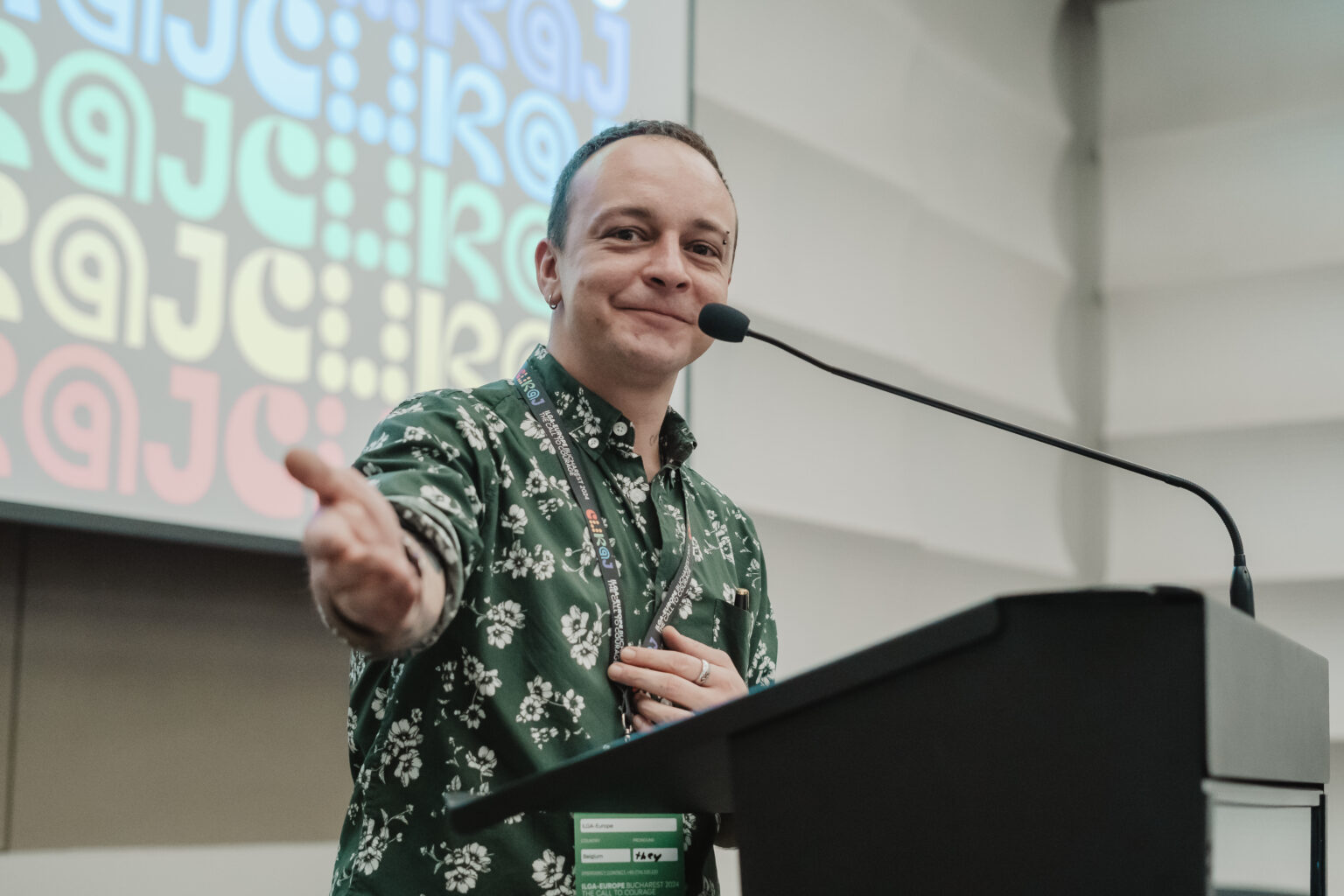
ILGA-Europe’s Executive Director Chaber shares insights into the movement’s direction, priorities, and how we can collectively move forward.
Q: Where do you see the LGBTI movement heading in 2025?
A: The past few years have shown how challenging these times are for the LGBTI movement, yet they’ve also revealed our community’s remarkable ability to adapt and persevere. We’re facing increased opposition, attacks on rights, and instrumentalisation in politics. However, there is hope in how the movement builds alliances—both within and beyond—and its capacity to engage underrepresented communities.
Many organisations are working tirelessly to shift societal attitudes and foster meaningful connections. These efforts to unite and inspire, after years of disconnection caused by the pandemic and conflicts, are the triumphs we can expect this year.
Q: What do you think the movement needs to focus on in 2025?
A: From the vantage point of an organisation that serves the movement across 54 countries, the diversity of needs and priorities is vast, so we cannot list or prescribe what groups and organisations should focus on. The issues that are prioritised locally are prioritised because organisations on the ground know best how to reflect the needs of their communities. And each of them, regardless of whether they’re organising prides, supporting communities with services, advocating with their governments or doing any other thing, plays a crucial role in the ecosystem. But an interesting question is on the broader themes that many organisations wish they had more capacity to address. These include fostering intersectional approaches, engaging underrepresented communities, combating disinformation, and building alliances across movements.
This shows it’s vital to have dedicated, flexible funding to enable organisations to meet these challenges effectively. Unfortunately, resource cuts across the region make these goals harder to achieve, so increasing organisations’ abilities to adapt and deliver in these circumstances will be a key point for the year and beyond.
Q: What is ILGA-Europe’s role in achieving these goals?
A: ILGA-Europe plays three key roles:
- Resource mobilisation: With funding cuts from governments and private philanthropy, we must advocate for sustained investment in LGBTI movements.
- Agenda-setting: It’s crucial to influence institutions and governments to ensure policies address the needs of LGBTI communities and empower civil society.
- Thought leadership: We’re prioritising developing strategies and capacities in areas that have not had enough attention paid to them but will be core to enacting change in the future, such as social acceptance, socio-economic justice, and emerging fields like AI. Our role is to explore and provide tools for organisations to engage with these issues.
Q: What challenges does the movement face, and how can they be tackled?
A: Insufficient political will remains a significant barrier. Many governments believe they’ve already achieved enough in terms of LGBTI rights, while others are actively rolling back protections. Anti-rights initiatives, such as anti-LGBTI propaganda laws and restrictions on foreign-funded organisations, are spreading.
To counter these, we must galvanise political will and mobilise governments and institutions to stand against such measures. It’s equally vital to educate and engage the public, building comprehensive advocacy and alliance strategies.
Q: What policy trends concern you most for 2025?
A: We’re deeply concerned about continued rollbacks on trans and non-binary rights and the spread of anti-LGBTI propaganda laws. These measures often coincide with anti-democratic initiatives, such as targeting foreign-funded organisations under the guise of transparency.
Such trends stem from the manipulation of public opinion and polarisation. They require advocacy and public engagement to counter false narratives and safeguard democracy and human rights.
Q: Which partnerships are most critical for ILGA-Europe in 2025?
A: Attacks on LGBTI rights are not only about silencing LGBTI people, they are often part of broader efforts to undermine democracy and target other marginalised groups, such as women and migrants. Our partnerships must reflect that all of us are at risk, and continue extending beyond the LGBTI movement to include organisations representing the interests of other groups. What is at stake is democracy and the rule of law, and through that the freedoms of people.
Q: What is your personal goal as Executive Director for 2025?
A: My priority is to ensure ILGA-Europe becomes more agile and adaptable. With the funding cuts across the region we will not double our resources, but the needs will increase, and we must find ways to offer faster and more tailored support to diverse groups and organisations. It’s about staying ahead of the curve and continuing to serve the movement effectively.
Q: What is your message to the LGBTI community as we start the year?
A: In these challenging times, we need to redefine success and celebrate even the smallest wins. Every act of visibility, every partnership, and every step forward is a victory. Together, we’re part of a larger ecosystem of change.
A strategic shift in our social media presence
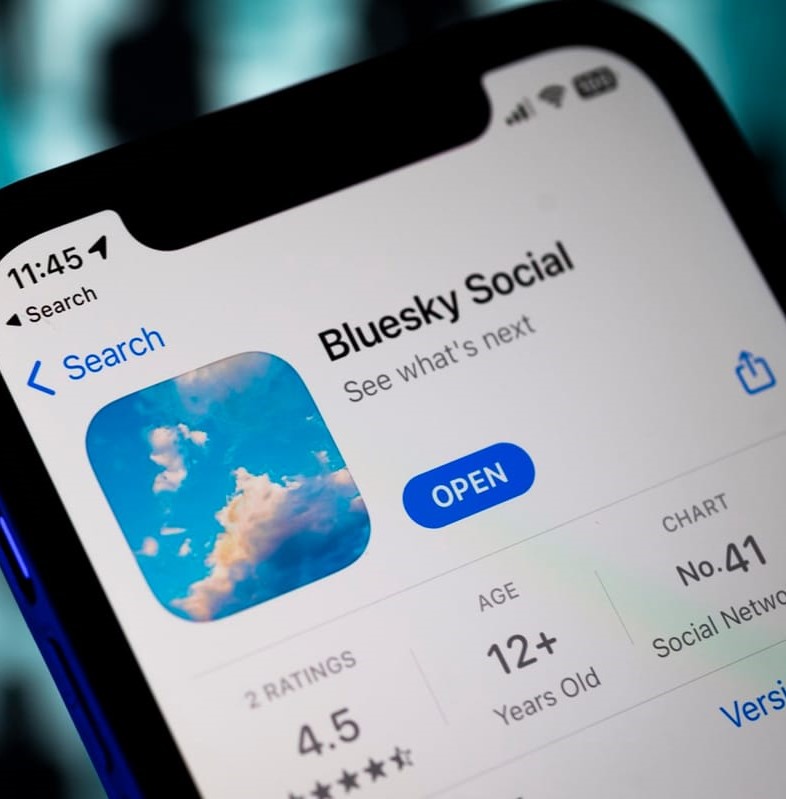
After a thorough review, we have made the decision to discontinue posting to our X account with immediate effect.
As an organisation dedicated to supporting LGBTI activist organisations in Europe and Central Asia, and advocating on behalf of the LGBTI movement, at ILGA-Europe we value the role social media can play in cultivating connection, raising awareness, and driving positive change. At the same time, we are mindful of growing concerns about the increasingly divisive nature of certain platforms, including X, and the challenges this poses for creating safe and impactful spaces for engagement.
Every organisation must carefully evaluate its social media strategy, balancing its mission with the evolving dynamics of digital platforms. After a thorough review, we have made the decision to discontinue posting to our X account with immediate effect. This was not an easy choice, but it reflects our commitment to adapting our approach in ways that best serve our members, mission, and values.
Why We’re Making This Change
We are committed to fostering meaningful conversations while not contributing to hateful narratives. We also take seriously our responsibility to create inclusive, supportive spaces. The rise of harmful content and inconsistent content moderation on X raised concerns about whether the platform aligns with our values and the needs of the LGBTI activists and communities we serve. Coupled with a significant decline in engagement and growing toxicity for our communities, we’ve found that our campaigns achieve greater impact on platforms like LinkedIn and Instagram, where there is more space for thoughtful discussions and meaningful connections.
What We Will Be Doing
As part of this strategic decision, we will be investing in a social media strategy, as part of a broader communications strategy that better aligns with our goals. We will focus on platforms like LinkedIn, Instagram and other new channels, including TikTok, Bluesky and Threads, where we can amplify nuanced messages, foster meaningful connections, and ensure safer, inclusive dialogue.
Listening, learning, and reflecting with our members and the movement will remain central to our approach as we navigate these changes together.
Staying Connected
We invite our online communities to continue engaging with us through our website, newsletter, and other platforms where we can share insights, updates, and opportunities to collaborate. Our X account will feature a pinned post explaining this change and guiding people to our other channels.
As we adapt to the evolving digital landscape, we reaffirm our commitment to creating a world where the human rights of LGBTI people are amplified, celebrated, and supported. Together, we will continue driving positive change, countering online hate, and amplifying the calls of the LGBTI movement across Europe and Central Asia.
- Keep our website in your bookmarks: https://www.ilga-europe.org/
- Subscribe to our monthly Rainbow Digest: https://www.ilga-europe.org/subscribe-to-our-newsletter/
- Follow us on Linkedin: https://www.linkedin.com/company/ilga-europe/
- Follow us on Instagram: https://instagram.com/ilgaeurope/
- Follow us on Facebook: https://www.facebook.com/ilgaeurope
- Follow us on TikTok: https://www.tiktok.com/@ilgaeurope
- Follow us on Bluesky: https://bsky.app/profile/ilgaeurope.bsky.social
- Follow us on Threads: https://www.threads.net/@ilgaeurope
- Listen to our podcasts, The Frontline: https://smartlink.ausha.co/the-frontline
Strategic Framework 2024-2029
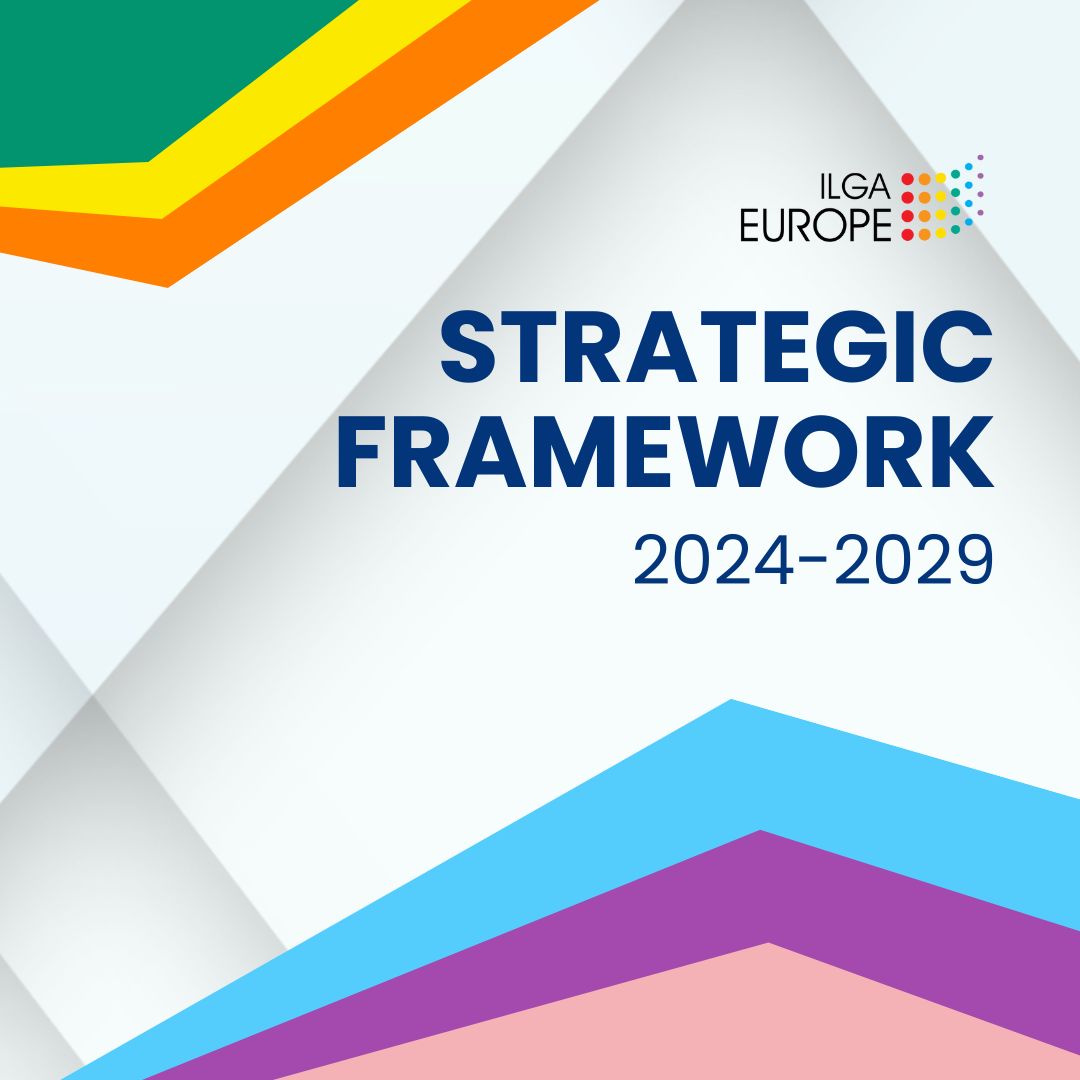
This Strategic Framework re-affirms our commitment and mandate to work with and for the LGBTI movement in all its diversity. It examines and expands on the roles ILGA-Europe will play over the next five years, where the organisation has a unique value to add and where we’re uniquely placed to play those roles.
While building on the previous Framework (2019-2023), it expands on our growing understanding of the ecosystem and strategies, and more clearly defines what we hope to achieve under each pathway: empowered and inclusive LGBTI communities, strong and growing LGBTI movements, and laws and policies recognising and protecting LGBTI people’s human rights. It also puts much more focus on working, as a movement, towards deeply-rooted social acceptance and inclusion, and towards fair, just and equal societies and economies.
Treasurer’s report 2023
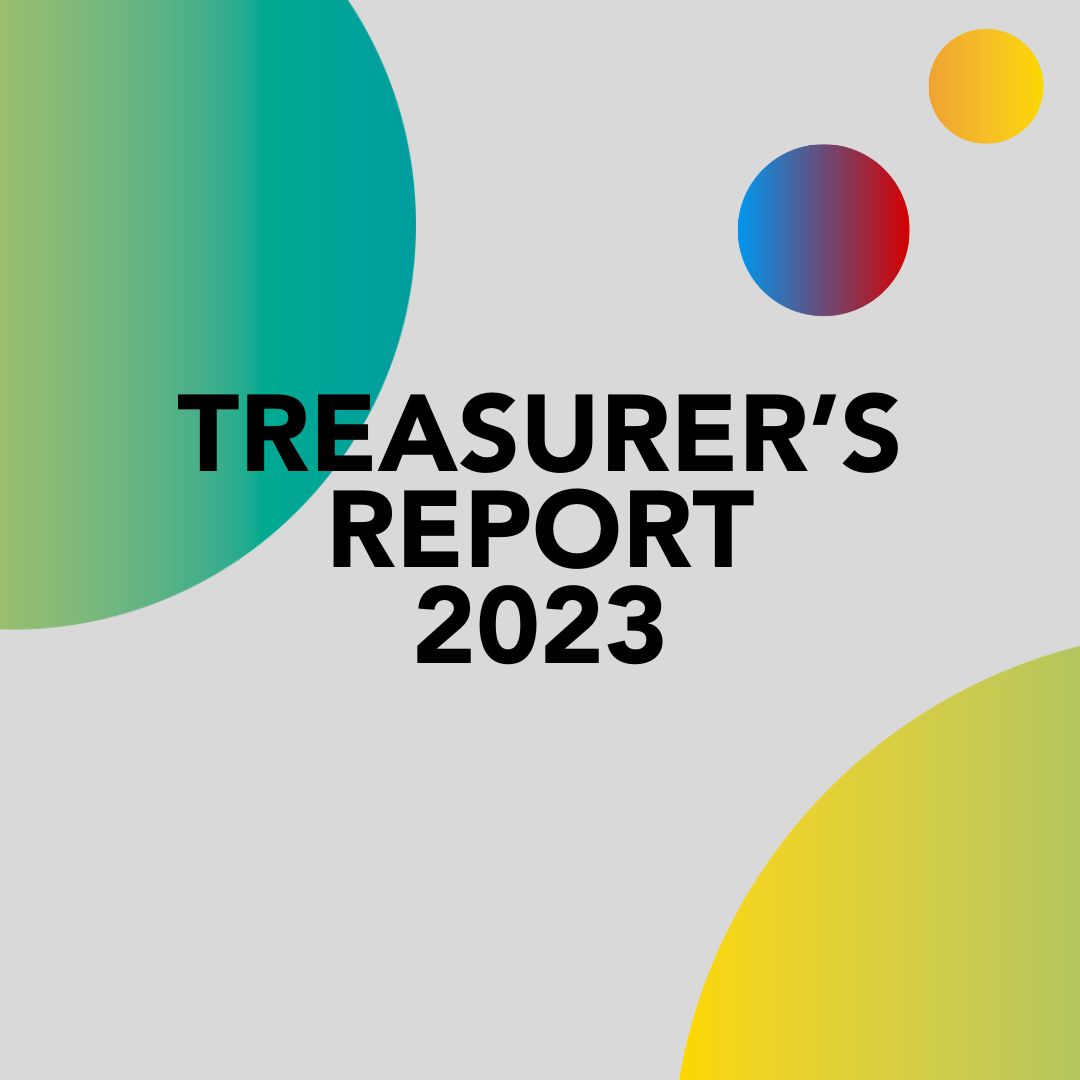
The projections for the financial year 2023 assumed a significant growth of the budget, new programmes and areas of engagement, return to regular operations without pandemic-related interruptions, and continued engagement on humanitarian and other support for Ukraine. Like in previous years, the work was a delicate balancing act of ensuring our long-term plans are implemented while creating space and time to respond to on-going developments and trends.
On top of that, the year 2023 was a year of major internal developments, including strategic planning for the following five years, and a leadership transition process. As you can read in our Activity Report, the ILGA-Europe team have carried out a hugely impressive amount of work. From further increasing our flexibility to support LGBTI organisations and expanding our connection with the movements in different countries and sub-regions, to bridging protection gaps and pushing for new and better legislations, standard-setting and helping translate laws into practice, we have been staying ahead of the curve.
We have committed to building and strengthening alliances to make sure LGBTI voices are an active part of collective actions for gender equality, decriminalisation of sex work, democracy, social rights. And we have taken important steps to engage more in the field of socio-economic justice.
2023: Our year in numbers
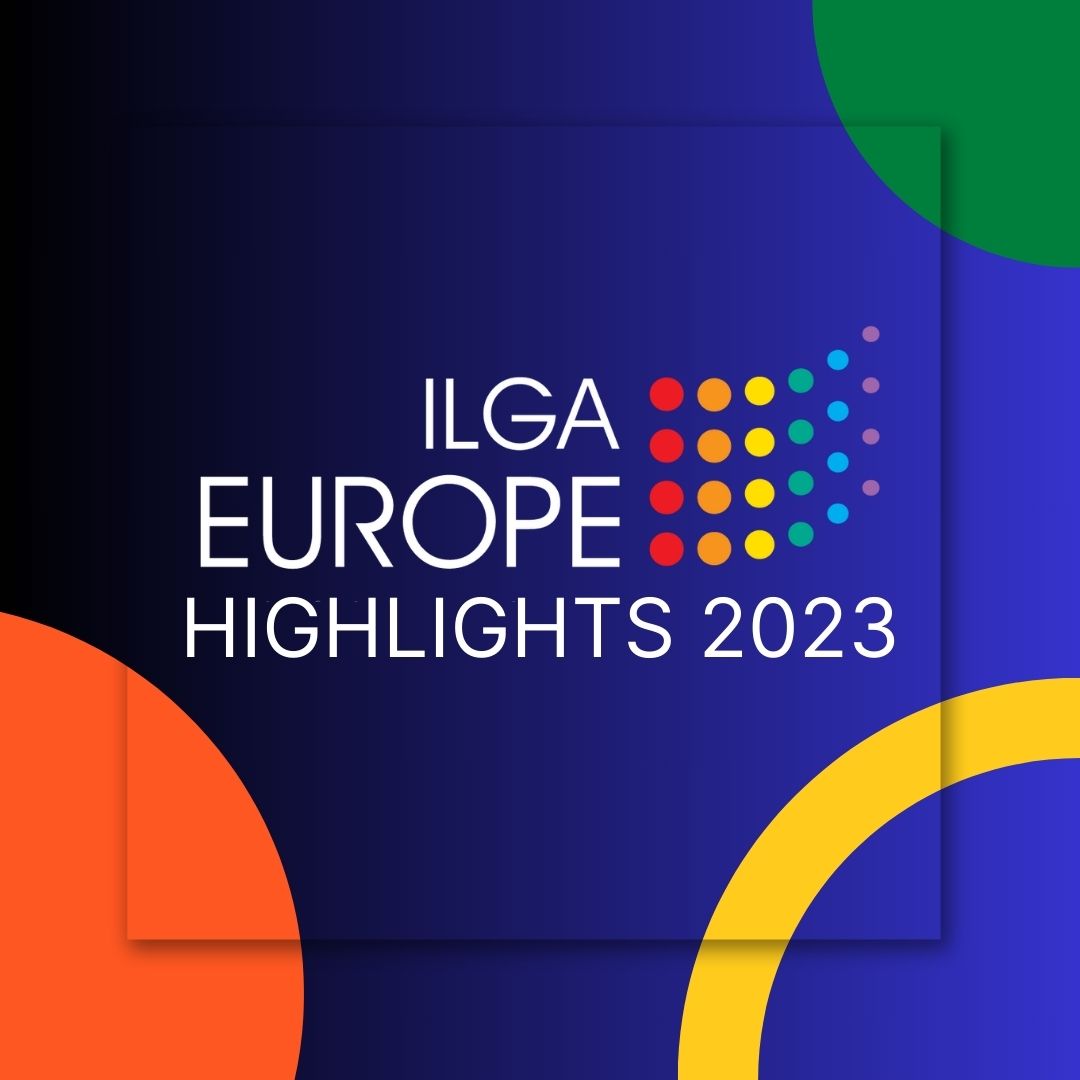
Every day of the year, ILGA-Europe is a hive of activity. Our 25 staff members are constantly working on a myriad of projects and initiatives to contribute to change for LGBTI people in Europe and Central Asia. Here’s an infographic of the highlights of the work done in 2023*. Not everything could be included but we hope it gives you a snapshot of the variety, depth and reach of our work!
*The information in this infographic encompasses our work from October 1, 2022 to September 30, 2023
The Frontline Podcast: Changing Leadership, Changing Times
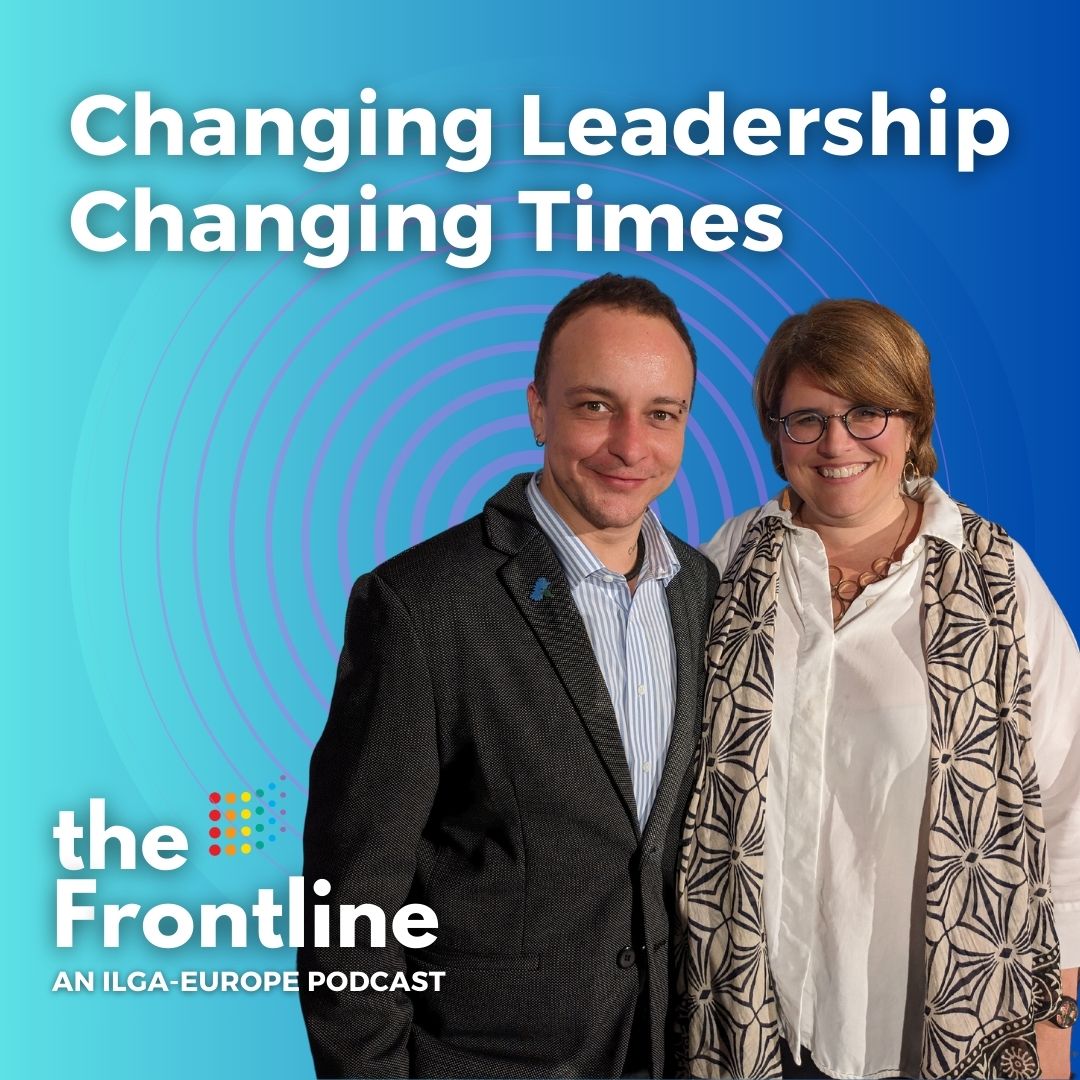
In the almost 14 years since Evelyne Paradis became the Executive Director of ILGA-Europe it has grown to become the largest umbrella organisation for LGBTI activism in Europe and Central Asia, playing a key and essential role in resourcing and fostering the LGBTI movement, and influencing political systems towards ever greater consideration of LGBTI people’s equality, freedom and safety in decision making and legislation. The past two years in particular have been a time of unprecedented expansion for ILGA-Europe, both in terms of staff and funding, and in our capacity to support, represent and help build a strong and strategic LGBTI movement in the region.
In this episode of The Frontline, as Evelyne Paradis hands over the reins of leadership to our new Executive Director, Chaber, we sit down with them both to talk about how ILGA-Europe has evolved as an organisation alongside the LGBTI movement over the past decades, and what’s just around the corner, both for the organisation and for the queer activist movement.
The Frontline: LGBTI activism now
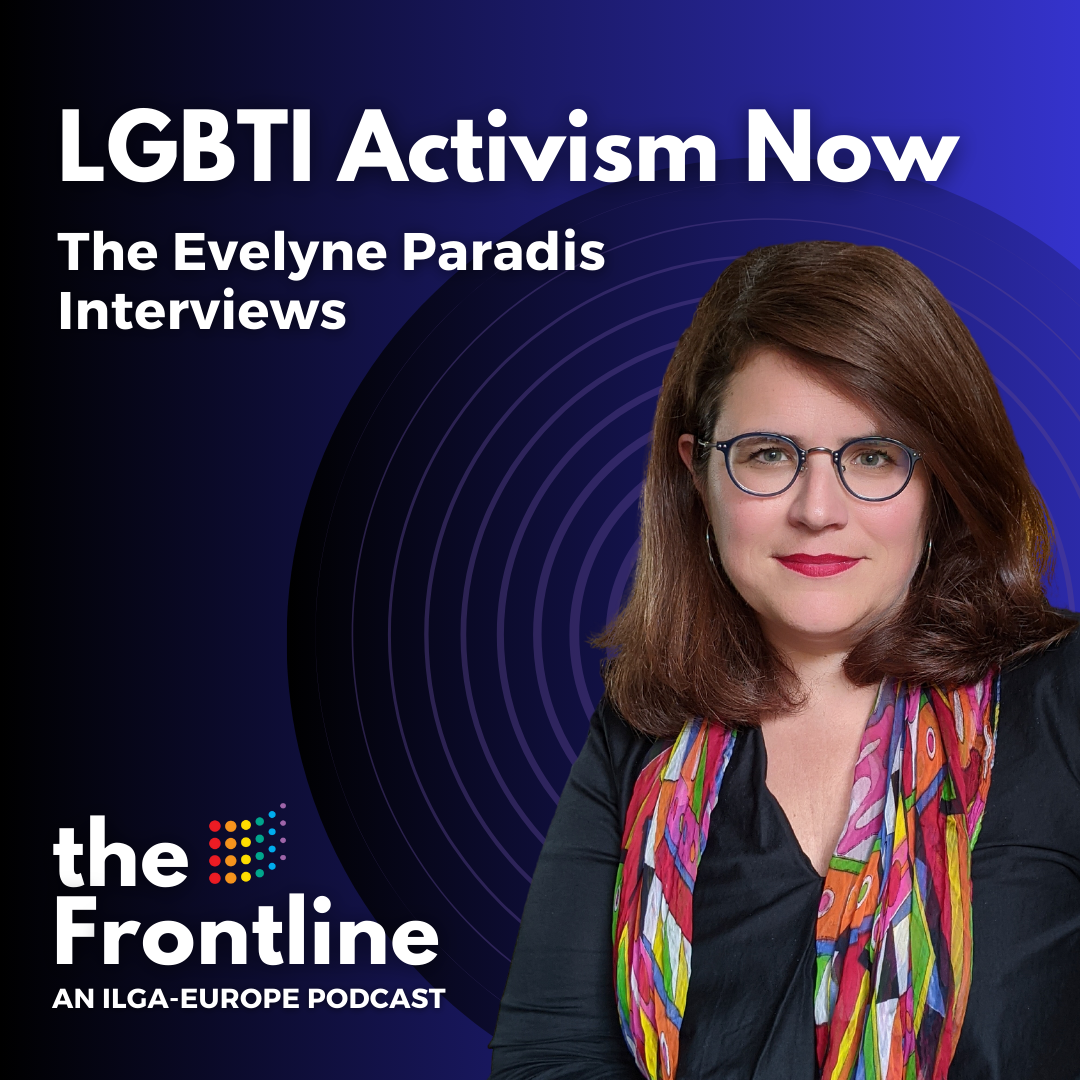
For the past 18 years with ILGA-Europe, 15 of which she spent as the organisation’s Executive Director, Evelyne Paradis has worked closely alongside and on behalf of LGBTI activists and organisations in Europe and Central Asia.
As she gets ready to hand over the reins to our new Executive Director, in this episode of The Frontline, Evelyne talks about how the LGBTI movement in Europe and Central Asia has evolved over her time leading ILGA-Europe, and how ILGA-Europe’s work to build and enhance the movement has evolved and grown too.
What have been the rising priorities in queer activism, and how has ILGA-Europe been both supporting and helping lead the charge? What have been the pitfalls along the way and what are the challenges ahead? And as LGBTI communities and activists face growing opposition from powerful right wing forces across the region, how can the movement still push forward for equality, freedom and safety?
Why you might be the right fit for our latest job opportunity
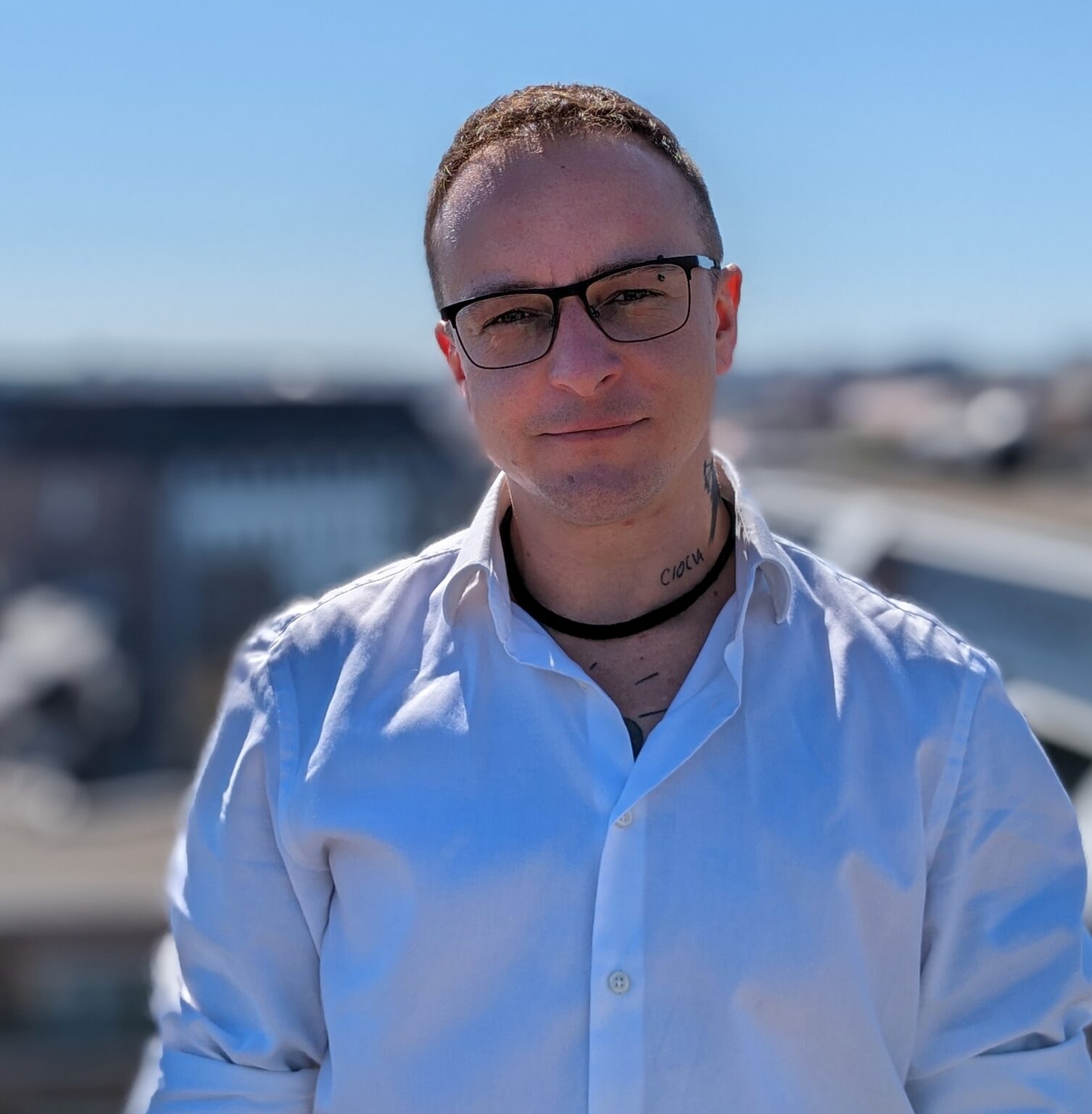
At ILGA-Europe we are looking for a brand new Finance Director. We talked to the current Finance Director about why the position is such an exciting one, and why it might just be the right fit for you!
Why is being a Financial Director at ILGA-Europe such a unique and exciting position?
It’s a job that’s not only about managing money. It’s about making real change for human rights in Europe and Central Asia, and that means it comes with a level of passion and cross-team engagement that is unparalleled. If you are as passionate about positive change, as you are about managing finances, this job is for you.
Currently ILGA-Europe is going through a period of steady growth and diversification of funding, and this is happening at a turbulent time for the LGBTI movement in the region. From limitations being put on receiving funding by civil society in some of the more hostile countries we work in, to the fact that we are processing double the finances we did just a few years ago, the job goes beyond sheer money management – it allows the Finance Director to find new and creative ways to structure finances and operations, and design internal policies and controls that balance sound financial management with the fact we need to be responsive, agile and adaptable. The Finance Director, together with ILGA-Europe’s committed and highly skilled finance team, will manage an exciting puzzle of pieces of funding, but they will also contribute to our overall strategic impact.
People often read job descriptions and think they would not be considered for the position. What kind of person are we looking for?
Most of all, we are searching for someone who is passionate about using their financial skills to keep our work solid, smooth and impactful. This job is a lot about finding solutions, and about making it easier to do the important work ILGA-Europe carries out daily. We know there is no one perfect candidate, so while there is a wide list of tasks and competences, we always leave space for learning – and a willingness to grow within and along with ILGA-Europe is crucial to us.
If you are interested in this position, here are some questions you can ask yourself:
- Can I manage organisational budgets with multiple sources of funding in a way that shows flexibility and a systemic approach at the same time?
- Am I able to design adequate operating and control systems to ensure our money doesn’t get lost or misreported?
- Can I manage a team with a diverse portfolio of tasks and ensure ILGA-Europe’s values are put into practice in operations?
What’s it like to work with the ILGA-Europe team?
The ILGA-Europe team are a dynamic bunch, who all enjoy the work that goes into building a strong movement for the human rights of LGBTI people. Not everyone on our team is from the LGBTI community, but everyone is committed to the essential freedom, safety and equality of all LGBTI people. There is a clear commitment from everyone in the team to quality and impact, and there’s a lot of cross-team cooperation.
Our new Finance Director will not only work within the finance team but will directly interact on project financial management with staff from other teams, will work with the Executive Board on our governance, with the Management Team on overall strategic implementation, policies, practices and maintaining a healthy organisational culture. The team offers a lot of support – both in terms of settling in Brussels and finding your way around our movement and work, and in terms of working out problems together. This is a type of approach we also expect from the person who fills the Finance Director positon, because our team as a whole is important to us. Plus, the ILGA-Europe team are a lot of fun to be with!
What is life in Brussels like, in terms of how far your wage goes, accommodation etc?
Brussels is a really fun and affordable city to live in, with a huge cultural life and a wide variety of activities and amenities. We provide one of the bests sets of compensation and benefits among similar organisations in Brussels, which means living in the city is very comfortable. Our insurance coverage is sensitive to medical needs of LGBTI people, our policies cover non-formal partners and dependants. Beyond that, the housing market is much more forgiving than in many other capitals, which means even the starting salaries even at the lowest grade allow for independent and comfortable living, with a convenient and short commute to work. There are plenty of houses and apartments to choose from, and they are generally significantly cheaper and more spacious than in London, Berlin, Paris, Dublin or Amsterdam. We believe in providing remuneration and benefit packages that allow people to thrive in their lives.
If there was one thing you could say to encourage people who might think this job could be a fit for them, what would it be?
We are an organisation leading real positive change for people at a time when this is much needed in our world. As an employer, we assess people for their competences built on past experience, but also for their potential, and we invest in the people we work with. Our approach to recruitment is about fairness, respect, and sensitivity to how different experiences impact people’s professional careers and build their skills. And we welcome and encourage applicants from all backgrounds, because we actively work towards and believe in diversity and inclusion.
The Frontline: LGBTI rights and politics now, with Evelyne Paradis
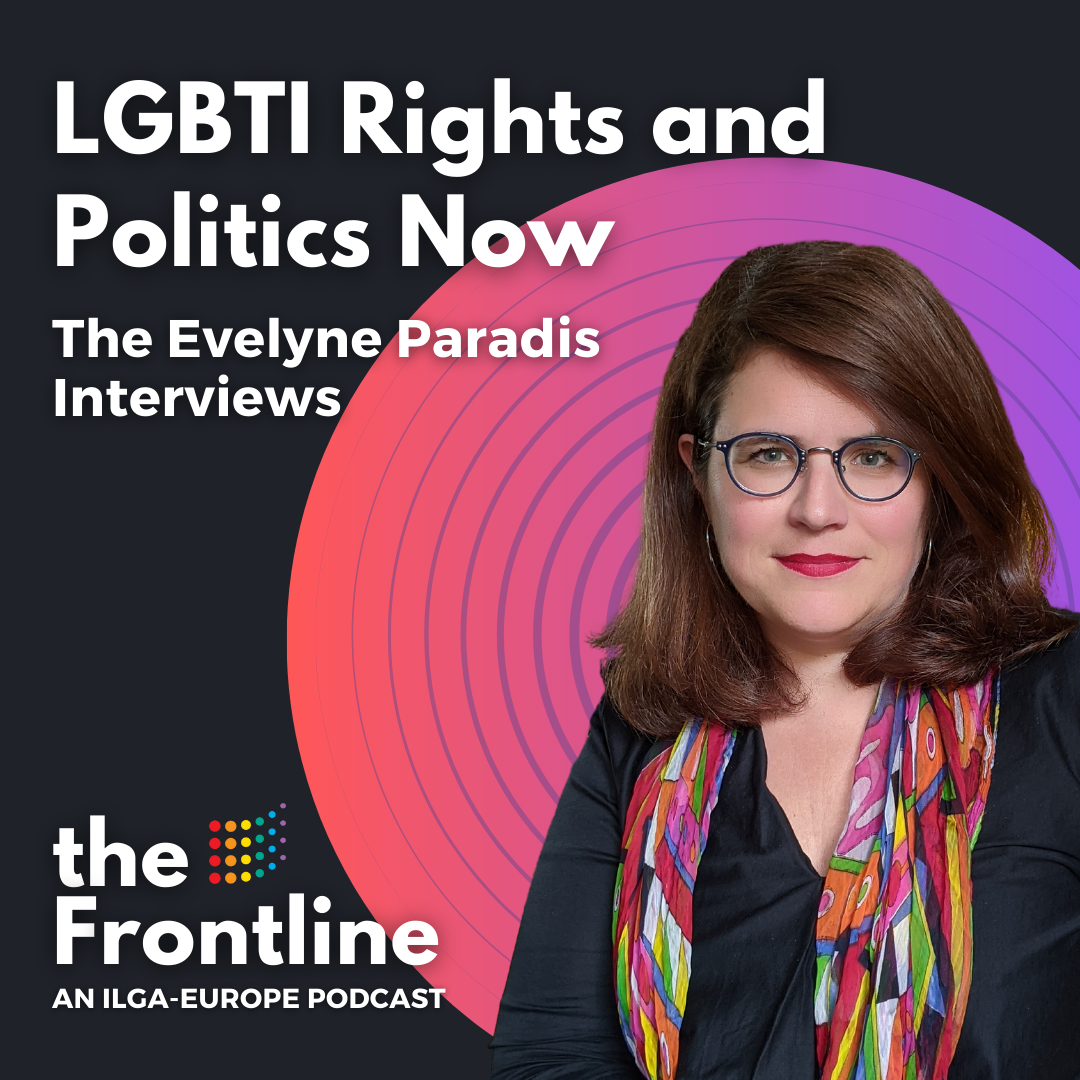
With a decade and half of experience leading Europe’s largest LGBTI umbrella organisation, which is a driving force for political, legal and social change in Europe and Central Asia, Evelyne has had a helicopter view of the growing place of LGBTI rights on political agendas and how all of this has filtered down in the everyday lives of LGBTI people across the regions.
In this episode, Evelyne talks about how politics have evolved over her time leading ILGA-Europe, which included the dawn and global spreading of social media, and how Europe’s political institutions have progressed to include LGBTI people across a broad range of portfolios and initiatives. Is the current EU political system working well to shore up and promote LGBTI equality, or are rainbow rights a victim to an advancing populism across the political spectrum? And what does it take to be a great politician? All these questions and more are answered in this, the first of the Evelyne Paradis interviews on The Frontline.
Q&A with our new Executive Director
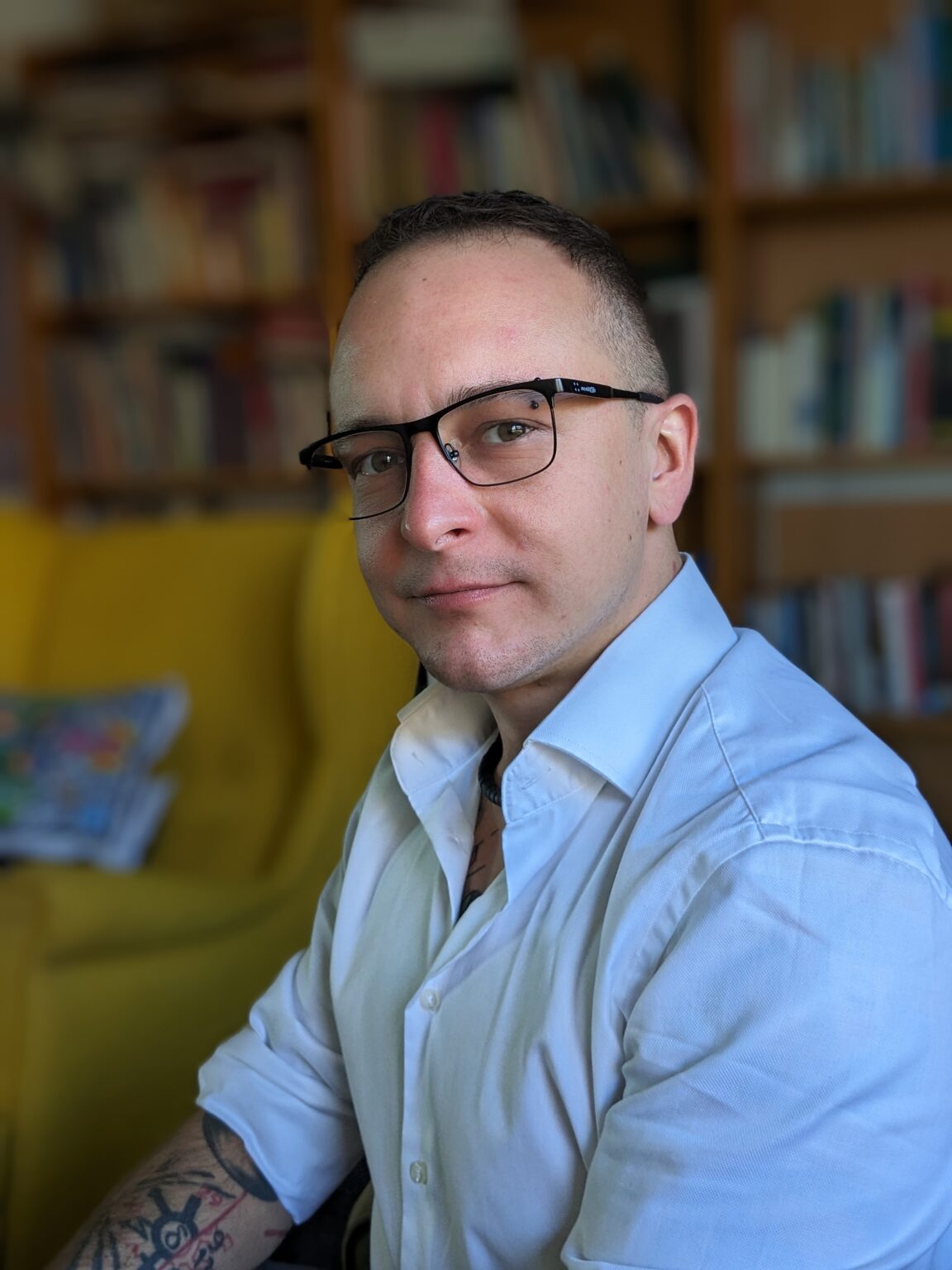
On October 1, Chaber will become the next Executive Director of ILGA-Europe. As they get ready to step into those shoes, let’s take a little time to get to know them, where they come from, how their activism progressed to this moment, and what they envisage for ILGA-Europe and the LGBTI movement in Europe and Central Asia in the coming years.
Hi Chaber! To begin with, tell us how and when did you first become involved in LGBTI activism?
I went to university in Warsaw to study psychology when I was 18. It was around the same time that I was coming out, so I started emailing LGBT organisations and asking for volunteer opportunities. No one really responded to my emails, so I went to the offices of KPH and asked if they needed anyone. There happened to be a meeting of a youth group that day, so I stayed for the meeting and then ended up staying in the youth group for the next couple of years.
What did LGBTI activism look like in Poland at the time?
Prides were met with violent opposition at the time. There were maybe two or three thousand people max at Pride in Warsaw, rather than the tens of thousands that go nowadays. The government was shifting a little, but there was no actual room for legislative progress or anything of that sort. As a youth group we were really focused on community organising and beginning to enter the public sphere for media campaigning, but in a very subtle way.
And what were you doing at the KPH youth group?
The work of the group was largely around the bringing together community members and creating a space for young people. It was done through organising exhibitions and parties, meetings, youth exchanges, things like that. So that’s what I was doing at the very beginning of it, organising spaces for young queer people to meet in the belief that sexual orientation was not a private issue. In that sense, it was politicising private lives to a certain extent. I think that also the one of the objectives that was lying behind it was to kind of create this stronger, more self-aware, younger community.
So, how did you go from working at the youth group to becoming the Executive Director of KPH?
After about a year in the youth group, I became the volunteer coordinator for the entire organisation. There were 16 branches of KPH across Poland, and some of my job was also to coordinate a network of volunteers from all of those branches. I was still studying for my degree, and the work was not paid. Soon I started getting engaged in small projects, organising events, trainings, taking part in internal developments. I got a part time job that later changed into managing parts of financial affairs of the organisation.
I was 22 years old when the organisation was undergoing a leadership transition, and the general assembly vested the role of president on me. There was no set staff structure at the time, no separation between the staff and board. Over the coming two years, it developed into a much more clarified structure, and my role shifted from President to Executive Director. The work didn’t change really that much, apart from the fact it became a full-time job and a very intentional thing I was doing with my life.
Did you always have a personality that was leadership oriented? How would you describe yourself in that respect?
I don’t think I ever had a huge drive for the visibility aspect of it, but I always had a drive for organising things, planning, making things work. Seeing how organisations could grow or how the structures grow, how we could become better and more effective at what we do, really shaping that strategic vision element of where we should be going. I always managed to surround myself with brilliant groups of people with whom we could carry out very ambitious work: from mobilising communities to engage with politicians, fostering a movement of parents, to legislative campaigns. All throughout my time at KPH, the people I was working with way more experienced activists from whom I could learn a lot. It was really a group effort in that sense. I’ve also spent the last six years on the board of the International Trans Fund, including as its Treasurer and Co-Chair, and there had a chance to co-create the strategy, structures and systems of a global grant-maker. The role was also an opportunity to grow personally in navigating colonial and racial dynamics and other systemic injustices we need to deal with as a movement every day.
You also were elected on to the board of ILGA-Europe during that time?
I joined the board in 2014. KPH and ILGA-Europe always had a close relationship, dating back to the early 2000s. Prides were being banned in Poland as that decade progressed, and ILGA-Europe were heavily investing in the development of KPH because it was the first advocacy organisation in the country. There were older groups in place, but largely focusing on providing psychological and legal support and other types of community work. KPH was founded to be a political player that invests in legal and societal change. And we continued to do so, just in new and creative ways, for all the following years.
In 2018, you became ILGA-Europe’s Finance Director. What would you say you learned during your five years in that role?
One thing that is most precious to me is being in an organisation that has such a vast and engaged membership. The membership of KPH was made up of individuals, many spread out around the country, and to make the organisation more cohesive and effective, we also limited the membership to a smaller number.
Working in ILGA-Europe is a different reality. It’s working in organisation that really puts a lot of effort into being driven by its membership, but also into directing where the membership and movement needs to go, where it needs to develop. From a Finance Director perspective, that was all around governance, around accountability, around helping to shape our programmatic work and regranting in a way that actually responds to needs and is conscious of realities of our members, and also building an ability to source information on the needs of the movement to funnel into the work. That was really a great piece of learning and something that I knew I wanted to learn when I was taking the job.
You’ve come from one of ILGA-Europe’s member organisations to the top role at ILGA-Europe. How important is that for you?
It makes me feel very lucky for all the opportunities for development I’ve had, because looking at our movement, I know that it’s very hard for people to progress and develop because of a lack of resources. The majority of our members do not have staff, do not have executive directors, do not have what they so badly need to do the work. It can be a much harder journey for some people than it was for me, with all the opportunities that I have had. But yet there’s also a feeling of being honoured and proud, because I’ve been involved and the LGBTI movement and different shapes and forms for 15 years. I’ve managed to do a lot of things outside of KPH, and ILGA-Europe as well. I have managed to interact with very many different organisations, both in Europe and globally, provide strategic direction and shift the way things are done.
It has been hard work to get here. It’s been 15 years of commitment and really putting all the energy, learning and capacities I have into the organisations I’ve worked with, to see them grow and develop and progress on their goals. The task of learning has been a continuous part of this journey and will continue for me. I think that’s the only way we build ourselves as professionals, by being continuously open to that learning and searching for new ways of doing things.
With all that experience and learning behind you, what do you see as the way forward ILGA-Europe’s work?
I think we’re in a moment in time where on one hand we have a mounting opposition against LGBTI rights across the region, taking different shapes and forms. We have weakened democracies and weak political systems in many countries, and upcoming elections that may limit our opportunities in the coming years. And at the same time, we have a movement that is extremely stretched, where we see many organisations undergoing leadership transitions, where we see a lot of burnout. The role of ILGA-Europe is to navigate and bridge that gap, driving the movement to the progress that is possible, and pushing the policy changes and improvements that make a difference. Which means that we need to surround ourselves with a movement full of vibrant and well-resourced and organisations that have the capacity to make use of the opportunities that arise occasionally, and develop strategies that actually work in the current context.
We live in a very, very different reality than we did five years ago and many of the ways and methods of work that we see organisations doing are just not working anymore. So, there is a big piece of our role in being that strategic thought, leader and figuring out where the highway of change can happen in the current context.
That is not a small ask.
No, it’s not, but we have a lot of building blocks in place because of the way that ILGA-Europe have been working and shaping its work through being really rooted in the movement, but at the same time having a bird’s eye view on different approaches and strategies. With more consolidation and internal learning and more connectedness with the movement, we are able to shape more effective work with the movement or for the movement.
We also have the power to mobilise significant resources and carrying out our work in a way where we can make best use of those resources and focusing them on, for example, development of specific organisations and different ways where they can achieve the most is a way in which we can really kind of harness the power.
You mentioned the changing landscape, and the landscape is also changing in Brussels. What are your thoughts about working forward?
I think we will have to put a lot of effort into making sure the issues of the LGBTI movement are still high on the agendas during elections. Obviously in the upcoming European Parliament elections, but also in the longer-term process around political participation of LGBTI communities and the public discourse in national elections. Whether it is around gender based violence, whether it’s about self-determination, bodily integrity and intersex rights, there are still elements of our political agenda and our benchmarks where we see there is an uptick on both regional and national level and that is something we need to continue to be pushing for.
What is your message for the movement as you get ready to take over the role?
It’s a message of unwavering commitment. I am looking forward to working together to strengthen our bonds and adapt so we can seize all the moments and opportunities that are, and will become available to us as we move forward as a diverse, vibrant and well-resourced movement able not only to withstand any opposition, but to adapt, work together, and through that forge sustainable progress. I can’t wait for my work in this respect to begin.
New Executive Director for ILGA-Europe appointed
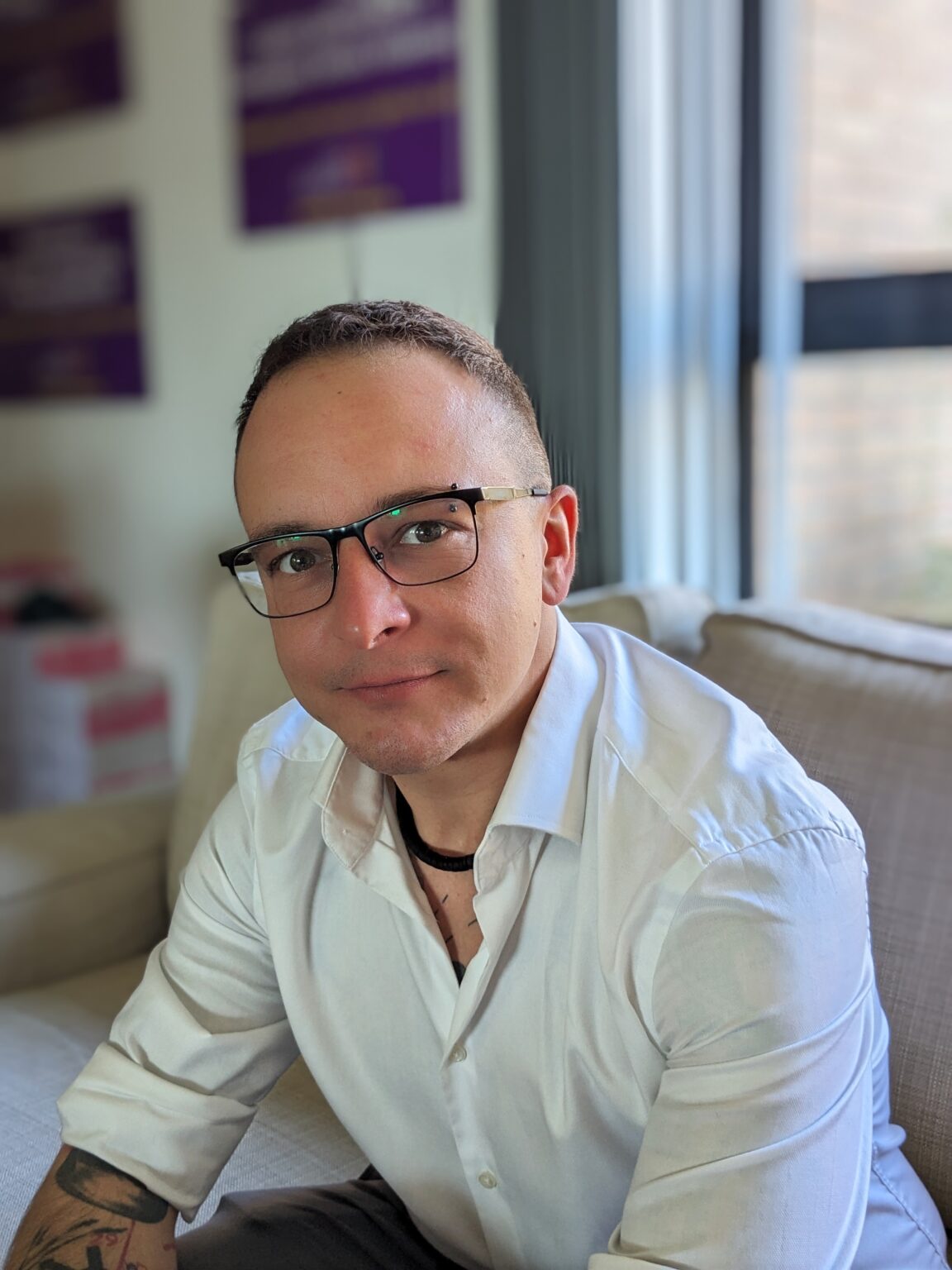
After a detailed recruitment process, the board of ILGA-Europe have announced the organisation’s new Executive Director.
The board of ILGA-Europe have announced that Chaber, a previous Executive Director of the Polish LGBT organisation, KPH (Campaign Against Homophobia), will step into the role from 1 October. They have also worked as ILGA-Europe’s Finance Director for the past five years. Their appointment to lead ILGA-Europe comes after a recruitment process that began in May of this year.
According to Co-chairs Natia Gvianishvili and Yves Aerts Jacobs, “During the recruitment process, the ILGA-Europe Executive Board had the luxury of having several strong candidates, whose time and commitment to the process we appreciate and are grateful for.
“While the value-alignment and engagement with and care for the communities in Europe and Central Asia was something that the shortlisted candidates definitely had in common, Chaber stood out with their ability to be both visionary and practical in their approach. Chaber showed skills and experiences important for a strong leader and a strong manager. They showed the thinking and ability to navigate difficult political situations, that an organisation like ILGA-Europe might be, and has been, faced with, and proposed solutions that put the movements on the ground at the centre, respecting their safety, agency and integrity as well as being a strong advocate for better resourcing of their work.
“ILGA-Europe is an organisation that has been open to growth and change, but a lot more work needs to be done to support the under-resourced segments of our communities, finding new strategies, holding difficult conversations that will move our collective work forward. The next stages of our work will be outlined in our new Strategic Framework and our expectation is that Chaber, together with the amazing team at ILGA-Europe, will find meaningful and maybe even new and interesting ways of achieving the goals we and our membership set for the organisation.”
Speaking about their appointment, Chaber said, “I am deeply honoured to become the leader of an organisation that is so fundamental to the advancement of equality, freedom, strength and safety of LGBTI movements in Europe and Central Asia. Having been part of the ILGA-Europe team since 2018, and sat on its board for three years before that, I have a deep and nuanced understanding of our role working with and on behalf our 700-plus member organisations, and LGBTI activists across Europe and Central Asia.
‘The LGBTI movement and ILGA-Europe have been central to my life for over a decade, so my message to members as I look forward to becoming its new Executive Director is that of unwavering commitment – we will strengthen our bonds and adapt so we can seize all the moments and opportunities to come.
‘We are all navigating through time of turbulent and transformative change, marked both by the unique challenges and victories of LGBTI communities in the region and the remarkable growth of ILGA-Europe. We must further build our reach, impact and ability to drive change and amplify voices on a regional level, but we also must become surrounded by a diverse, vibrant and well-resourced movement able not only to withstand any opposition, but to adapt, work together, and through that forge sustainable progress. My goal for the coming years as ILGA-Europe’s Executive Director will be just that.”
Congratulating Chaber on their appointment, ILGA-Europe’s outgoing Executive Director, Evelyne Paradis said: “The world around us is in flux, and more than ever, ILGA-Europe’s role is to offer a steady point of reference for the movement as it continues to move forward. Activists also need the ILGA-Europe to be by their side and guide them as they navigate challenging times. In the next few years, the organisation will need to continue to grow, finding the balance between remaining solid and steady, and being dynamic and agile as the world around us changes so quickly.
“Chaber has truly unique combination skills: strategic and creative thinking, capacity to bring people along, an enormous ability and dedication to learning, calm and grit, commitment to creating collective spaces that elevate everyone. Beyond everything else, they care so deeply. About activists, about their colleagues, about ILGA-Europe. It is with immense faith and serenity that I’ll be handing over the reins of ILGA-Europe to Chaber.”
The board’s co-chairs concluded: “We look forward as Chaber begins the interesting next chapter in ILGA-Europe’s life, building on legacy of Evelyne Paradis and taking the organisation forward, maintaining its strength and stability, and making its role as a pillar and voice for the movements in Europe and Central Asia even stronger.”
Overview of ILGA-Europe’s Finances in 2022
In the financial year 2022 ILGA-Europe obtained and recognized 3 687 082 € in revenues, which is approx. an 11% (over 365 000 €) increase from the 2021 revenues. Another 200 000 € in donations and approx. 600 000 € in core grants were received in the course of 2022 but carried over to 2023 and further, to secure more operational budgets in the nearest future. The majority of funding recognized in 2022 was sourced from long-term projects and grants, raised in the preceding years.
The 2016 – 2022 comparison (see chart below) of proportions of core funding, unrestricted funding (donations and sponsorships), operating funding (European Commission) and project funding recognized in each year shows that in 2022 ILGA-Europe continued to prioritize flexible resources. The share of unrestricted funding (core grants, unrestricted donations and sponsorships) increased significantly over the past years, but it should be noted that in 2022 the amount of unrestricted donations received was lower than expected (480 000 € in 2021 and 280 000 € in 2022). The income of the European Commission operating grant was increased slightly in 2022, and will further increase in 2023. 2022 marked the beginning of a new Framework Partnership with the EC, under which ILGA-Europe will soon begin re-granting.
The two core grants used throughout the year (Wellspring Philanthropic Fund – 417 670 € and Open Society Foundations – 200 000 €) corresponded to 24% of the total budget. The share of project funding (over 1.7M € in 2022) increased to 66% of the total budget, with more resources mobilized to answer specific needs, and in lieu of higher unrestricted incomes. Within this category of project funding ILGA-Europe included two grants which in their nature were core, but were earmarked for providing funding in response to the war in Ukraine.
In terms of project financing, the majority of projects active in 2021 continued into 2022, with only one stream of programmatic funding (Anonymous) was closed and not renewed, but replaced with a project from another funder. The highest non-flexible revenues recognized were issued by:
- European Commission (Operating Grant) – 1 000 000.00 €
- Global Equality Fund – 464 301.41 €
- Anonymous – 315 561.55 €
- The Government of the Kingdom of the Netherlands – 210 000.00 €.
While the previous financial years have been heavily affected by Covid-19 in terms of both revenues and our ability to process funds and carry out activities, 2022 cannot be analysed without the mention of the impact of the invasion of Ukraine. ILGA-Europe quickly shifted its work and budget to enable as much coordination and support as possible be offered to the movement in Ukraine and neighbouring countries. No active fundraising was carried out – given the significant number of ongoing fundraisers, ILGA-Europe prioritized mapping existing efforts and needs, in order to be able to channel donors to where resources were needed, where gaps occurred (especially keeping in mind wider reach and distribution of resources, in particular to groups with less access to donors).
At the same time, significant amounts of ILGA-Europe’s resources were earmarked for financial and other support to groups operating in and around Ukraine. Two core grants (with the total value of 210 688 €) were received and assigned to the purpose of supporting the LGBTI movement in those areas with subgrants.
Additionally, just over 9 000 € in extraordinary revenues was recorded from write offs, unreconciled refunds and round up differences. These are income items recognized largely at year-end. While they constitute unrestricted funding, ILGA-Europe limits their generation through internal controls, and they serve to balance any negative write offs, currency exchange balances and other similar losses.
The total of expenditures registered in financial year 2022 amounted to 3 606 265 €.
| Total 2021 Actual | Total 2022 Budget | Total 2022 Actual | |
| Staff costs | 1,762,609 | 1,867,737 | 1,844,873 |
| Office Costs | 277,169 | 324,087 | 335,052 |
| Gathering Online / Annual Conference | 60,009 | 408,600 | 398,980 |
| Board Meetings | 45 | 22,000 | 28,130 |
| Work Programme Costs | 266,038 | 340,700 | 264,652 |
| ILGA-Europe Capacity Dev. | 25,998 | 40,000 | 47,376 |
| Fundraising | 6,247 | 30,000 | 18,761 |
| Re-granting | 749,885 | 1,262,000 | 654,856 |
| Other and losses | 4,160 | 24,640 | 13,584 |
| TOTAL EXPENSES | 3,152,160 | 4,319,765 | 3,606,265 |
The audit of financial year 2022 took place in January 2023 and found no issues. It confirms recognized income of 3 687 082 €, expenses of 3 606 265 €, and a year-end result of 80 817 €. This year-end result was primarily sourced from unrestricted funds and extraordinary income.
Treasurer’s Report 2022
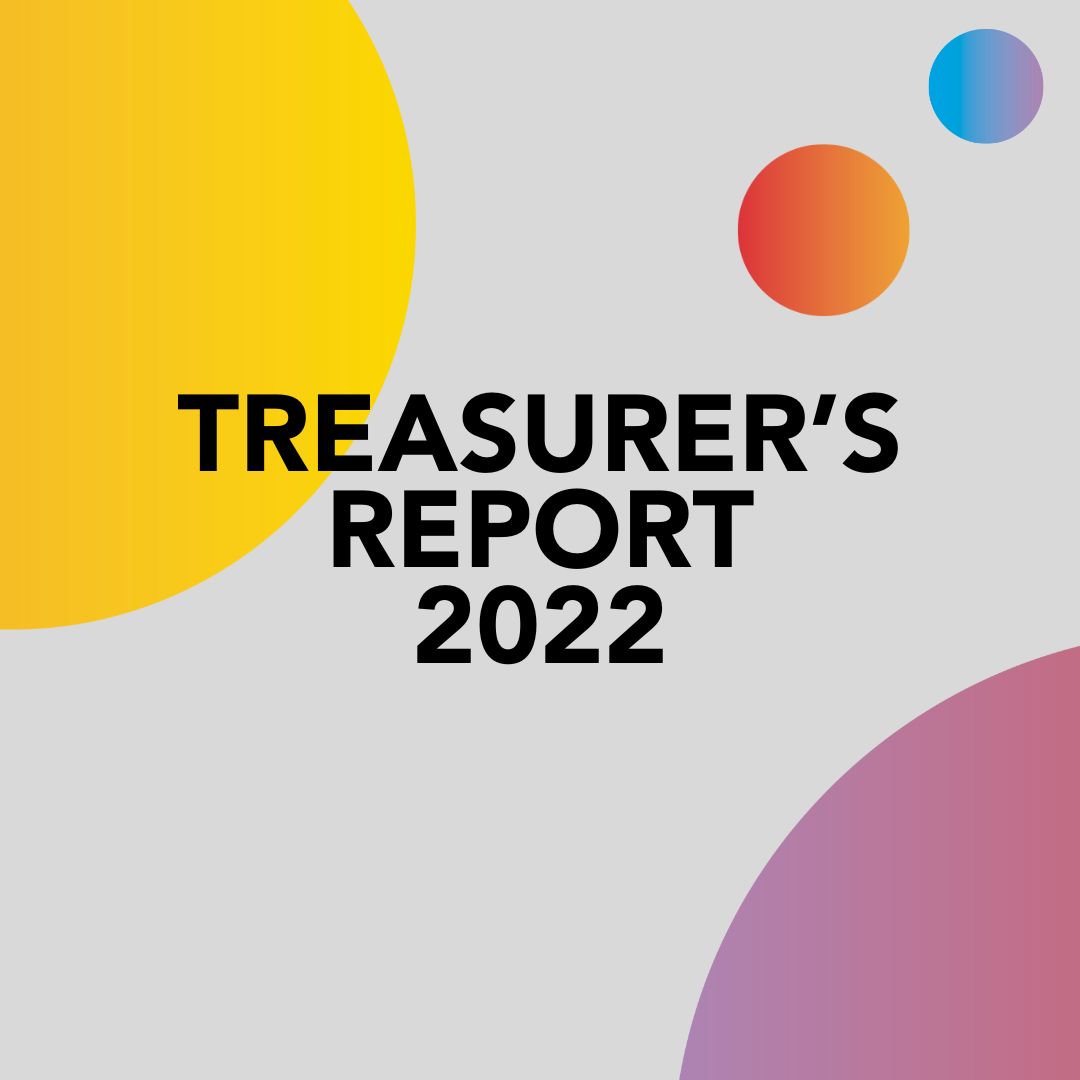
While the projections for the financial year 2022 assumed a steady growth of the budget, new programmes, and a slow but steady turn to regular post-pandemic operations, ILGA-Europe did not anticipate that Russia would launch a full-scale invasion of Ukraine. As a result, the work became a delicate balancing act, one which we had been in many ways prepared for by the COVID-19 pandemic two years earlier. ILGA-Europe understood from the outset that the war was not going to be a short-term situation for people in Ukraine, Russia, and neighbouring countries.
The team recognised that there would be particular vulnerabilities experienced by LGBTI refugees, and those LGBTI people who were either forced, or chose to remain in Ukraine and Russia. With this understanding, a significant amount of immediate time, resources and energy was required to respond – practically, financially and strategically – to the needs of LGBTI organisations both in Ukraine and across the region ILGA-Europe work in.
Resources were shifted and workplans were adjusted to align with these needs and realities. Some previously planned programmes and activities were delayed further into 2022 or, in some cases, into 2023. ILGA-Europe proved to be able to adapt to the context and make best use of existing resources. Significant funds were used for re-granting and providing other types of support to affected groups and organisations.
2040 Looking back: Future Activism Interviews
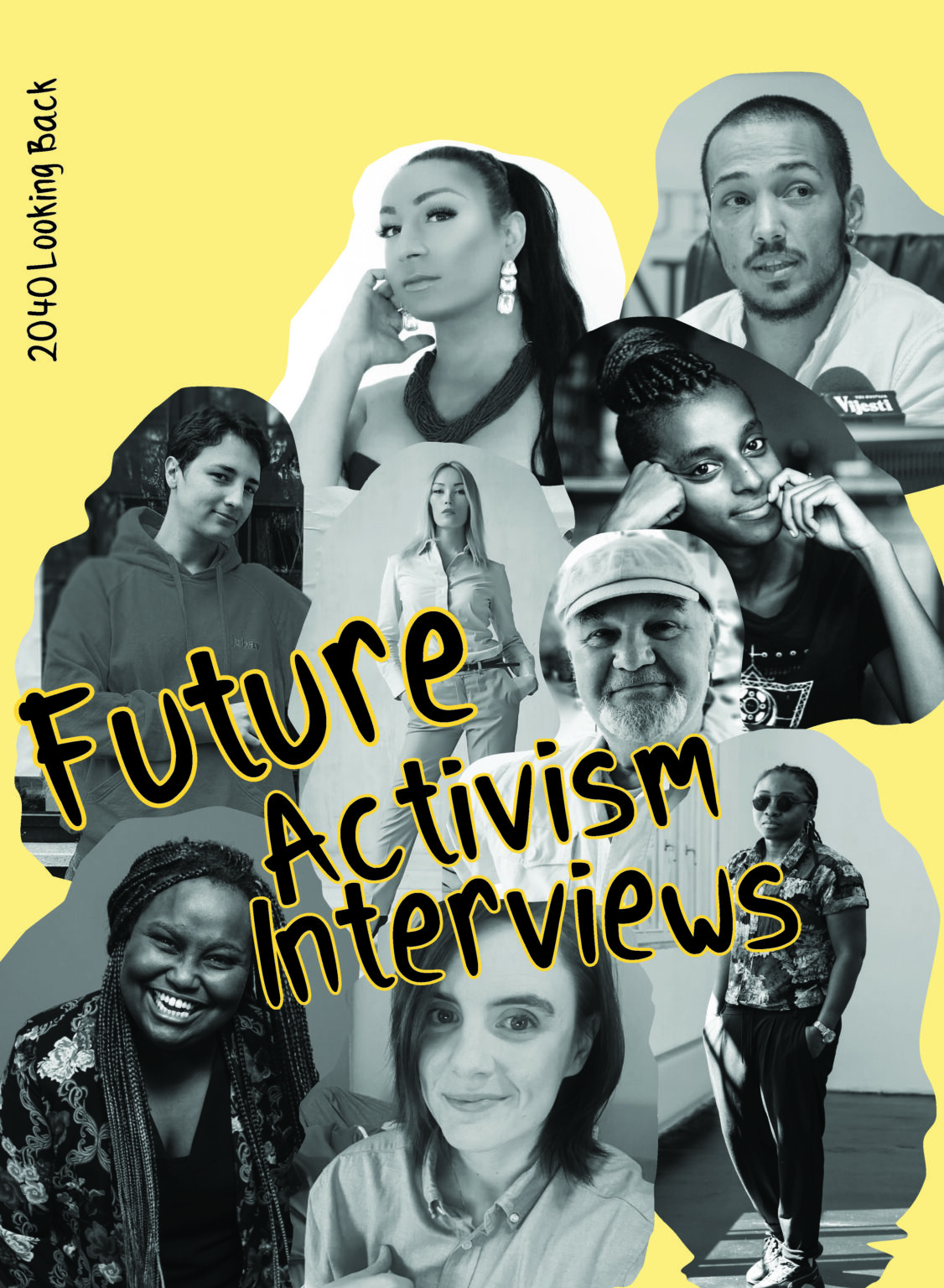
Have a look at ILGA-Europe’s zine of ‘speculative futures’ interviews, set in the year 2040, with powerful LGBTI activists from across the region.
Our Executive Director Leaving: ILGA-Europe Board’s Response
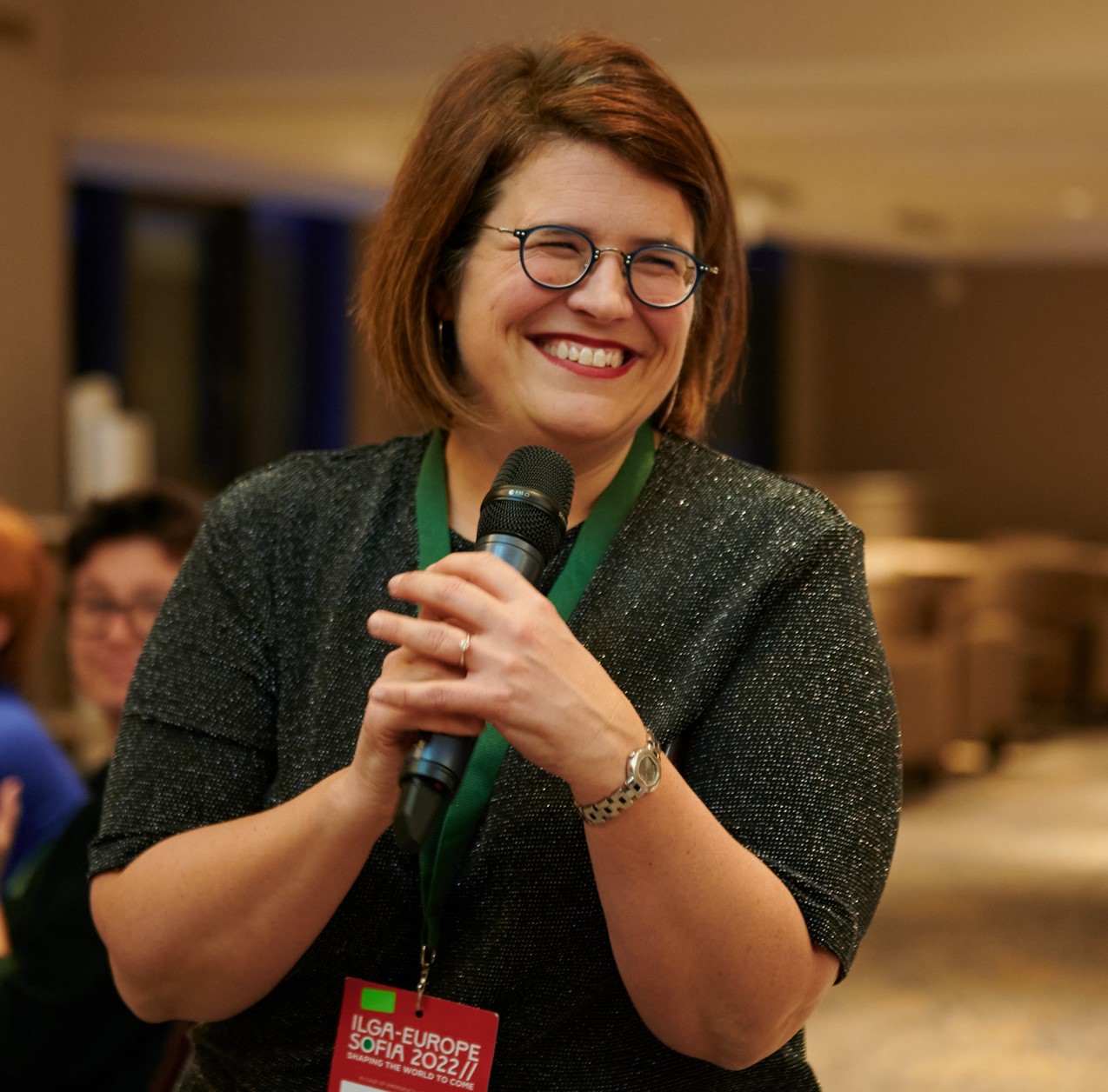
“Although we are deeply sad that we will have to say goodbye to Evelyne, her departure will also present an opportunity, both for the organisation and for whoever takes on the role.
After having Evelyne as part of the movement for so long, and also leading ILGA-Europe itself for so many years, it came as a bit of a shock when she announced to the board her intention to step down. But having spoken to Evelyne at length, both individually and in a collective setting, it is clear that she has decided to take this step, both out of consideration for herself, and considering the future and innovation of the organisation.
As members of the board, we fully respect and applaud Evelyne’s decision. Of course, we are emotional too. Evelyne has been right there since all of us on the board became activists in the movement. She has been a level-headed, clear-sighted constant in an ever-changing world. Her consistency of vision, combined with highly-intelligent and informed adaptability, has provided a core, calm underpinning as we navigated huge change as a movement during the years of her tenure.
The world may continue to be in flux, but Evelyne is leaving ILGA-Europe at a time when the organisation is in a more stable position than it has ever been, not only in financial terms, but in the strength of its staff team, which is solid, cohesive, engaged and ready to step up where necessary. This is a testament to both Evelyne’s leadership, the leadership of other managers in the organisation, and the commitment and passion of every team member. Knowing this as a board, we are calm about the transition because we know whoever is appointed will be leading a holistically healthy organisation.
A strong mandate
Amid such organisational strength and stability, this change in leadership will not put ILGA-Europe in a vulnerable position. Although we are very sad to that we will have to say goodbye to Evelyne, her departure will also present an opportunity both for the organisation and for whoever takes on the role.
That person will not only get to lead a structurally sound organisation, but one that is cohesive in its values, and which has grown over recent years, not only in terms of finance and staff, but also in approaches to the work, such as increased flexibility, expanded connection with the movements in different countries, and deeper connections to institutions, politicians and policy makers, both in Brussels and nationally across the region. There is a very strong mandate from the membership for ILGA-Europe, and there is a definite opportunity for whoever takes over the role to develop their own vision alongside the team, to see how this can be further delivered upon. To see how we further develop an organisation that constantly adapts to meet what is relevant to the movement in circumstances and an environment that is changing, shifting and becoming more and more critical.
It’s a lot of responsibility – Evelyne will be the first to tell you that! – but it’s also an opportunity to lead an organisation that encourages and embraces innovation and creativity.
Working directly with Evelyne, the entire board has taken on the task of ensuring that the recruitment of ILGA-Europe’s next Executive Director is done in a timely and proper fashion and ensuring that everyone who needs to be involved in the process has a place at the table. We will be having a General Meeting in June and we encourage members to join and ask any questions they may have, which we will be more than happy to answer.
Smooth and easy transition
Our goal is to make this transition in leadership as easy and smooth as possible. We are working with a recruitment company who will assist us at every stage. We have appointed a selection committee of six members from the board, and the staff have all been consulted about what they think is needed in terms of both soft and hard skills for the position. The role will be advertised this week and recruitment will happen in early summer.
There will be several more occasions for us to express our gratitude for Evelyne’s commitment, consistency, tireless work and frankly great company over the years, and for us to wish her well in her future endeavours, which we know will be of benefit to the world. But at this juncture we want to express our deep appreciation for how involved and considerate Evelyne has been in her process of departure. That she is leaving in such a structured and well-thought out way is a testament to her leadership. There were tears from the board when she told us of her plan to leave, and I know from the staff too. It is hard to imagine an ILGA-Europe without Evelyne, but we know her work has ensured that it will continue to thrive in its crucial role working for a world in which each and every LGBTI person in their everyday lives is free, equal and safe.
Natia Gvianishvili & Yves Aerts Jacobs, ILGA-Europe, Co-chairs
Our Executive Director announces her departure
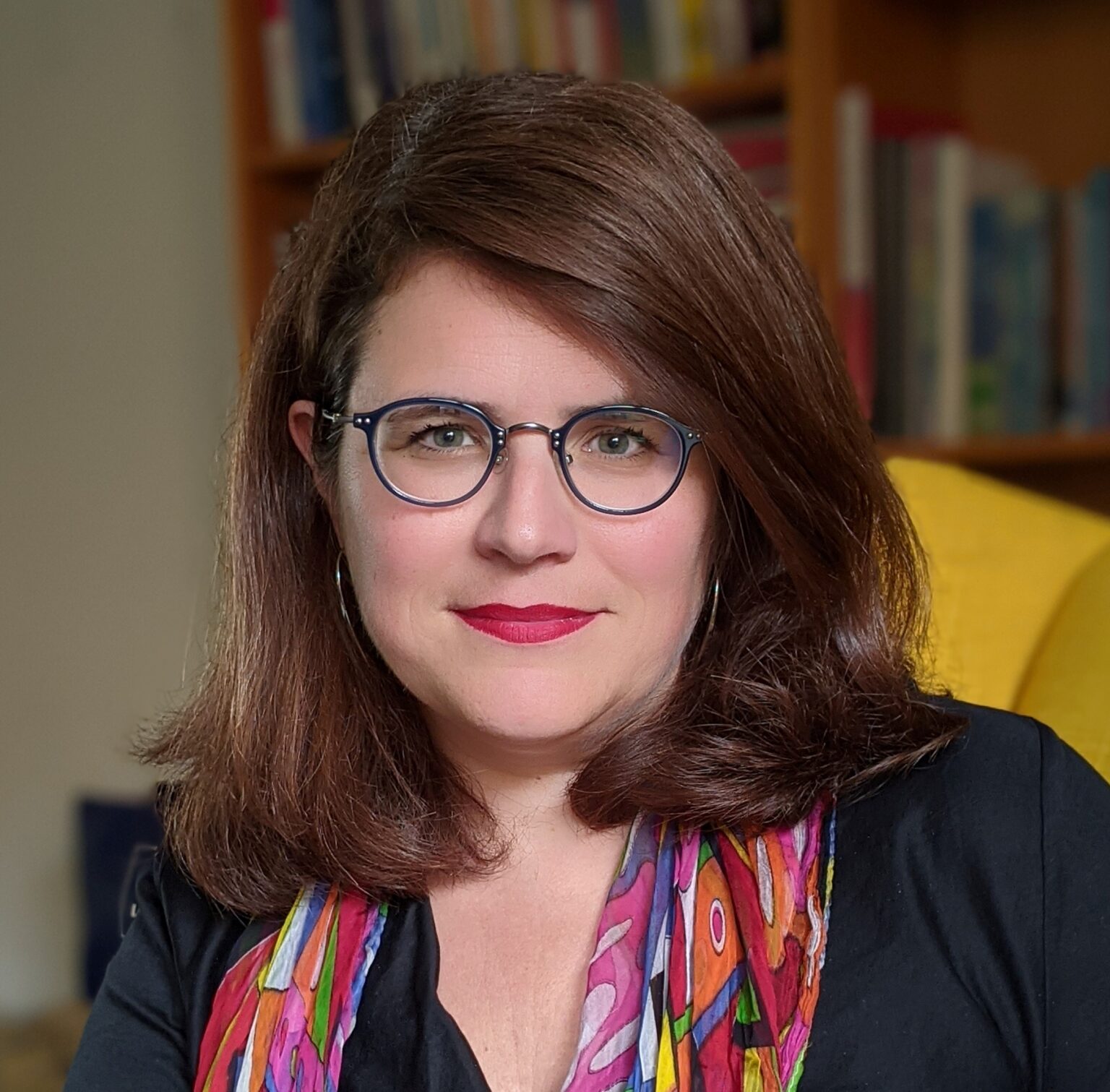
“I’ve come to my decision with great serenity and calm knowing that ILGA-Europe is in such a solid and healthy position and that everything is in place for the leadership transition to be done smoothly,” says Evelyne Paradis as she announces her decision to step down from her role at ILGA-Europe after 13 years.
Sustainability and a sense of stability are very important for any organisation. But I’ve always believed that renewal is just as important. And so, for many years now, there’s been that question in my head about the right timing to move on. It feels that after being a staff member in ILGA-Europe for 18 years and the Executive Director for 13, we’ve come to that point.
It is time for me to step down as Executive Director of this truly unique organisation that is ILGA-Europe, and to create space for someone new to come in.
I’ve come to my decision with great serenity and calm knowing that ILGA-Europe is in such a solid and healthy position and that everything is in place for the leadership transition to be done smoothly. It has an incredible team of professional and committed staff, a very engaged board, a consolidated financial footing, and despite the upheavals of our world, lots of clarity about what we’re about and what we can contribute.
The way in which I leave matters as much to me as how I have been doing the job. I care so deeply about ILGA-Europe, about all our staff, our board, our members and the work we do together, and I know that a leadership transition is a significant change.
This is why, alongside the board, I am working to ensure the process is as smooth as possible and that this change truly is an opportunity for the organisation. We have embarked on a process where we are allowing as much time and space needed for the transition to be a positive one for everyone involved, and especially for the ILGA-Europe team and board.
This is why I’m announcing my decision now, but I will be formally stepping down from my role at the end of September this year. I’ll be staying on in a different form to support the organisation for a few months afterwards, in whatever way I’m needed.
On a more personal level, my decision has also been about recognising that being the Executive Director of ILGA-Europe takes its toll and I need my own renewal. I know the level of personal dedication, energy and thinking it takes to do this job, and I realise I can’t continue to do that much longer.
For now, my only plans will be to take a few months to rest and reflect on my 18-year long journey with the organisation. Looking at the world around us, I feel drawn to explore how I can build on my immense learning from ILGA-Europe and from our movement to find new ways of contributing to bring change around me.
As I make this decision, I am truly excited about ILGA-Europe’s direction of travel, with our expanded ability to support the movement in flexible ways, deeper work on structural inequalities, growing reach and political impact. And it will be a real pleasure to support the next person in whatever way I can so they can step in the role with confidence and optimism.
There will be time in a few months for me to express my deep gratitude to the many, many people who’ve held me, encouraged me, taught me and trusted me throughout the years. For now, I am simply looking forward to six more months at ILGA-Europe and making the most of working with my ever-so committed, caring, joyful and smart team on a daily basis; of steering our beloved organisation with our inspiring and dedicated board members; and of continuing to learn for as long as I can from the resourceful, resilient, determined LGBTI activists across our region.
How we created our brand-new website to support LGBTI activism

After 18 months of planning and work, the team at ILGA-Europe are proud to introduce our brand-new website. It shows the range of work we do and LGBTI activists and organisations can now easily find the information they need. Keep reading to learn more about how it was developed and how you can make the most of it.
What a journey it’s been! Almost two years ago, ILGA-Europe’s communications team took the first steps towards the renovation of the organisation’s website. The previous version dated from 2015 and so much has happened in the organisation and in the LGBTI movement ever since.
These changes had to be reflected in our digital home. The same way we take care of a house, our website desperately needed a spring cleaning, a rearrangement of the furniture, accessible rooms for all, and brighter colours on the walls. And there were thousands upon thousands of pages, which all had to find their own special place in our new digital house, with a new hierarchy, which made them easily to find.
Working together with SOLOS, a fabulous communication and image agency based in Portugal, we re-imagined the structure and design of our site to streamline the access to information, express in simpler but more dynamic ways the complex work we do, be closer to visitors and make them feel part of the ILGA-Europe community, and to be connected to and useful for our 600-plus membership organisations across Europe and Central Asia, and other LGBTI activists and allies.
Here is what LGBTI activists can find on our new website:
An expanded visual identity
We are happy with ILGA-Europe’s current logo and didn’t want to change it, but we wanted to find a way to extend it beyond the rainbow colours that feature prominently on it, so that our brand-new website would be able to represent the real diversity and intersectionality of our community. The solution the SOLOS design team came up with was to take the coloured dots on what we internally call ‘the tail’ of the ILGA-Europe logo and expand them into a series of animated circles that feature gradients of colours to represent everyone in and every part of our wonderful LGBTI community.
These gradient circles underpin the entire design of the site, and the colours used across its pages. We combined them with a lot of white space so that the website would feel light and accessible instead of dense and off-putting.
Less words, more colour
Remember our old website?
This is how the same page looks in the new website:
Words filled most of the screen in our old pages and while it’s mainly through language that we continue to share what we do and know, alongside resources that may be useful for you, the layout is now less dense and visual elements have more prominence.
Instead of receiving all the information at a first glance, now you can comfortably navigate it by scrolling.
Accessibility for all
A priority throughout the whole process was to make all the website accessible and inclusive for all. The needs of people with visual impairments were at the forefront when testing and selecting fonts, colours and composition. Furthermore, now users can choose the colour schemes and font sizes that work best for them in each and every page.
Finding what you need
The top menu consists of five sections:
- Under About us you will find everything you need to know about our organisation.
- Supporting the movement and Advocacy: These sections compile the work we do, on one hand, empowering LGBTI activists and organisations across Europe and Central Asia and on the other, advocating for the protection of the fundamental rights of LGBTI people in our regions.
- Under Rainbow Europe you will find two of our vital publications on the situation of LGBTI people, the Rainbow Map & Index and the Annual Review.
- Under News you will find our latest publications.
In the “burger menu” (the circle button containing three horizontal lines) you will find the same sections in a dedicated page. There you will find the Donate button too, with which you can support the work we do!
The search function
Internet users have got used to the comfort of typing a word instead of combing section after section to find what they need. That’s why our website now has an optimised search button providing you with useful and meaningful results, which you can filter until you find exactly what you need.
Date, type, topic, tag
You can also navigate our content by date, type, topic or tag. Topics correspond to the areas of our advocacy work and here you will find the content organised by portfolio, while the tags describe what the content is about. There are many more tags than topics. You can combine different options from the date, type, topic and tags lists to target your search.
We hope you enjoy our new website! Here’s an image of a group of SOLOS team members with the ILGA-Europe’s communication’s team after three days of intense work in Brussels in April 2022. We want to thank SOLOS once again for coming along with us in this journey!
Organisational development & design

Creating and evolving organisations, groups, collectives and networks is at the core of social change work. There is no universal recipe for success here. A lot of this work is experimental and unique to each and every case.
We are here to support LGBTI activists in creating and developing organisations, groups, collectives and networks that make sense for their purpose and context. For example, along with our grants, LGBTI groups have our support and coaching in fine-tuning their strategies, strengthening financial management systems or practices, and in navigating crises.
We centre and expand this work through the programme – OrgMinds: Insights for Designing Purposeful and Resilient LGBTI organisations.
OrgMinds is a learning programme for LGBTI activists on designing and running organisations, groups, collectives or networks that are fit to advance their missions, bring people together, withstand troubles, and make the best of their resources.
OrgMinds is currently bringing together a group of around 20 LGBTI activists from 14 countries who are:
- Learning what organisational design is and how it can support their organisations’
- strategy and mission
- Getting hands-on tools and solutions for fine-tuning and strengthening their organisations through strategy, structure, and culture, and testing the relevant elements in practice
- Connecting with a supportive peer network of other LGBTI activists and organisations on this journey of growth and learning.
We are observing, documenting, and building up on the experience of OrgMinds participants to make sure that the rest of the LGBTI movement can access this learning.
To find out more about our Organisational Development and Design programmatic work, contact Senior Programmes & Policy Officer, Anastasia here.
Treasurer’s report 2021
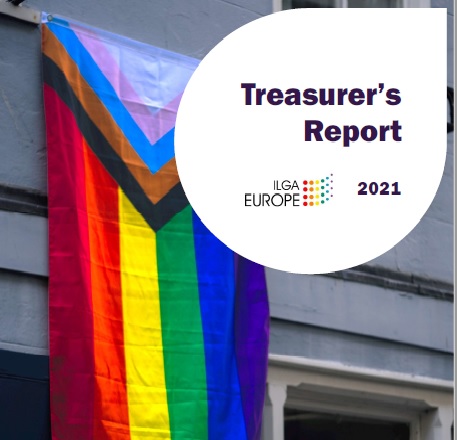
It goes without saying, that even without the perturbations of COVID-19, both financial and organisational, the year was a period of complex work to secure diverse funding required to cover the work carried out throughout the region. With several grants coming to an end both in 2020 and 2021, including some being the sole sources of funding for important elements of ILGA-Europe’s workplan, extreme efforts were put in since the beginning of the pandemic to mobilise sufficient funding for the growing and diversifying needs of the LGBTI movement in Europe and Central Asia.